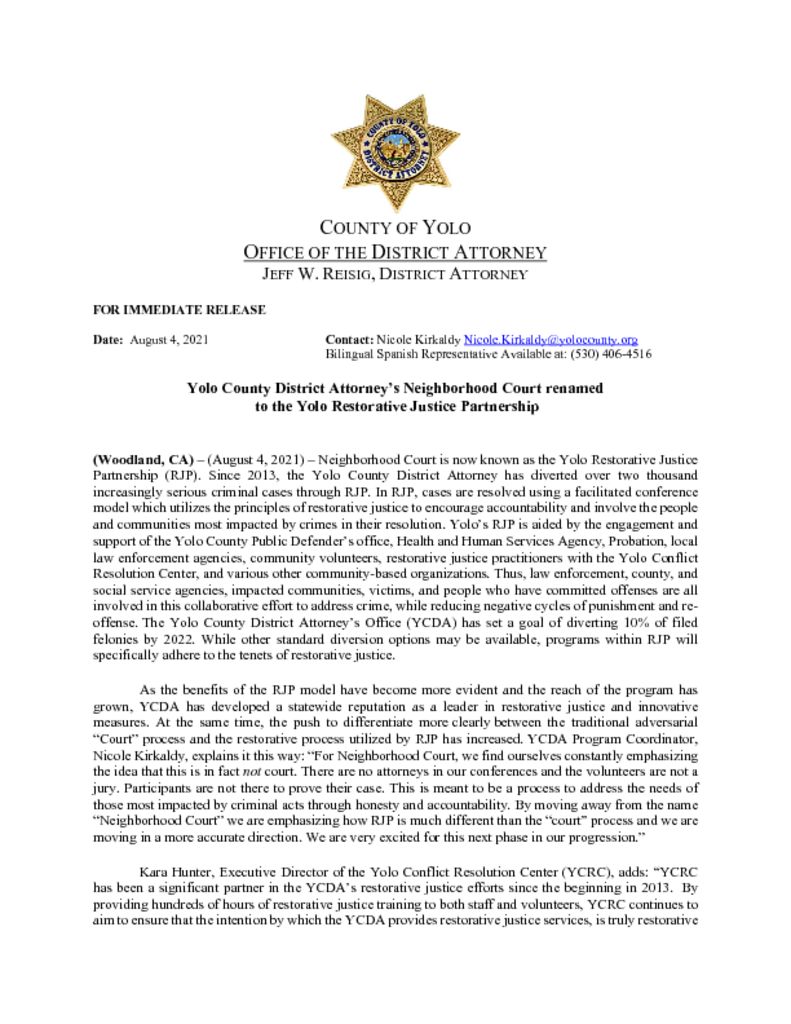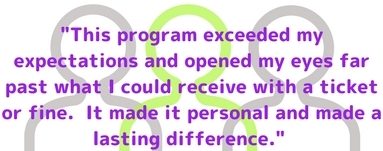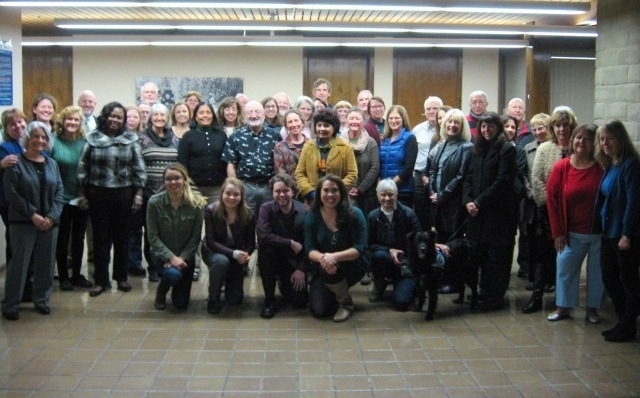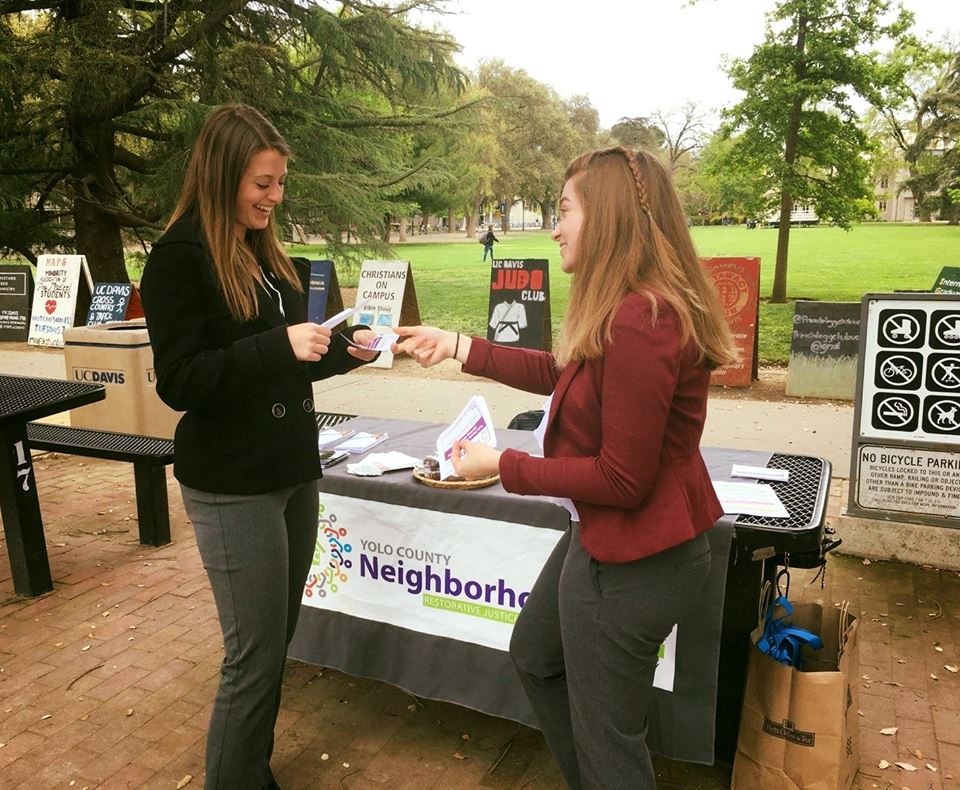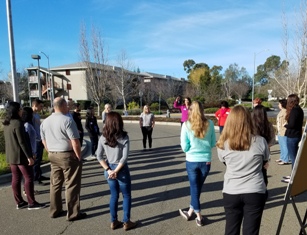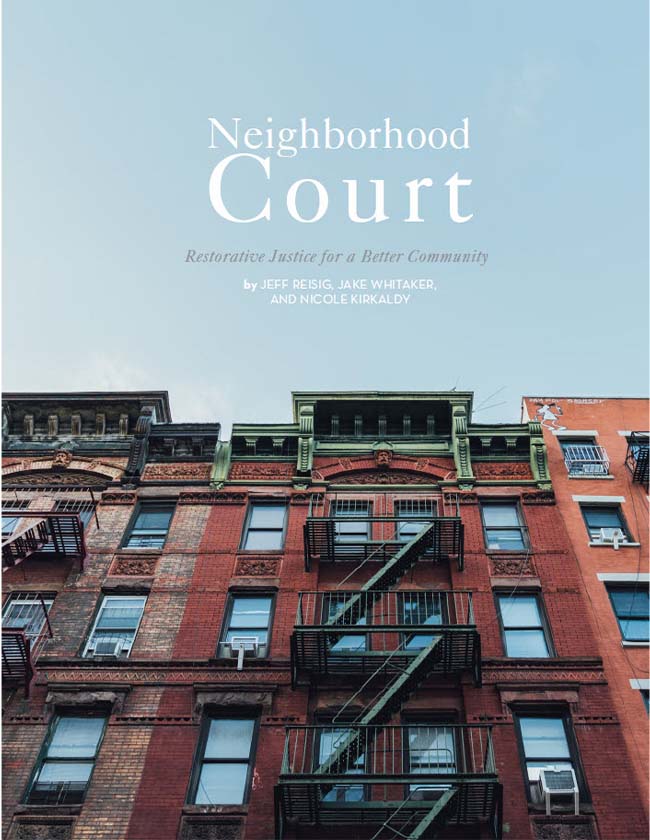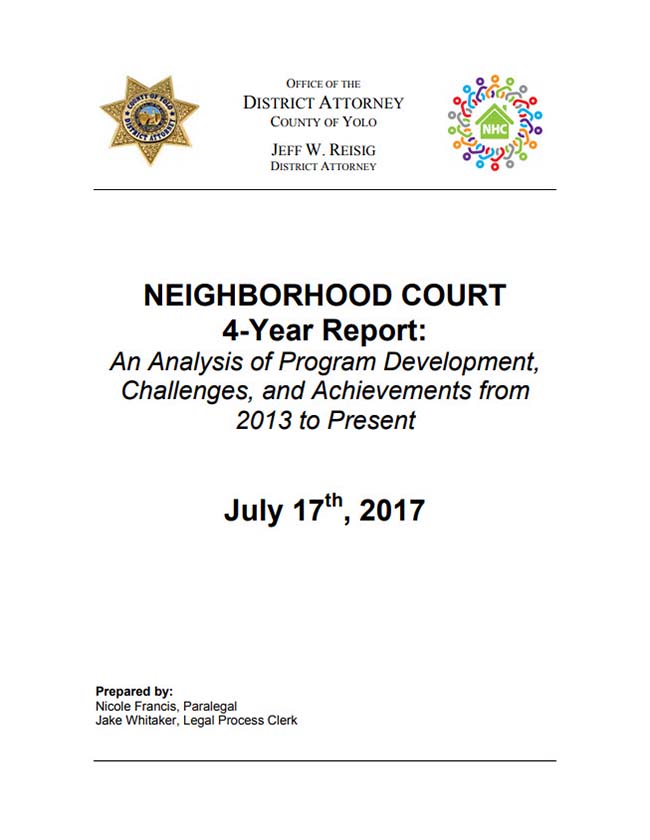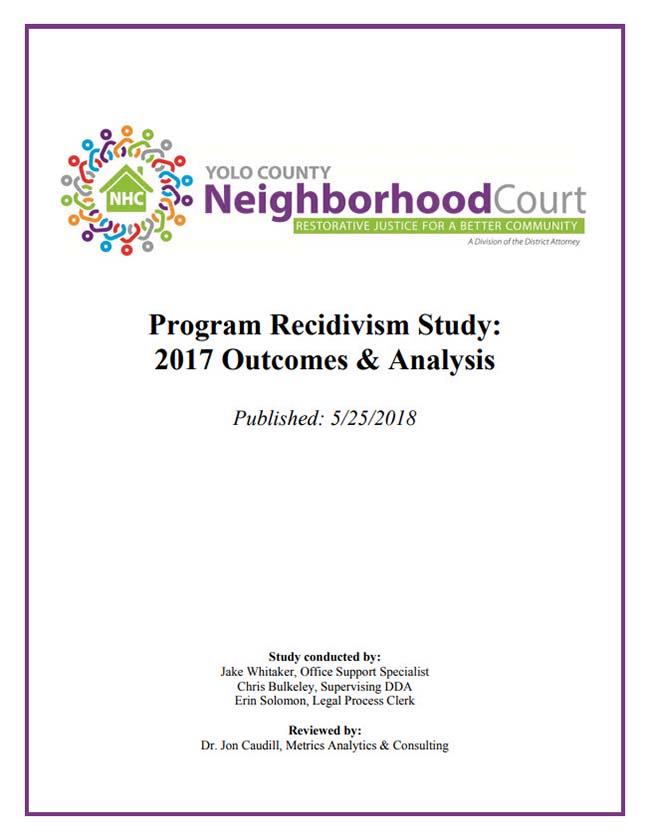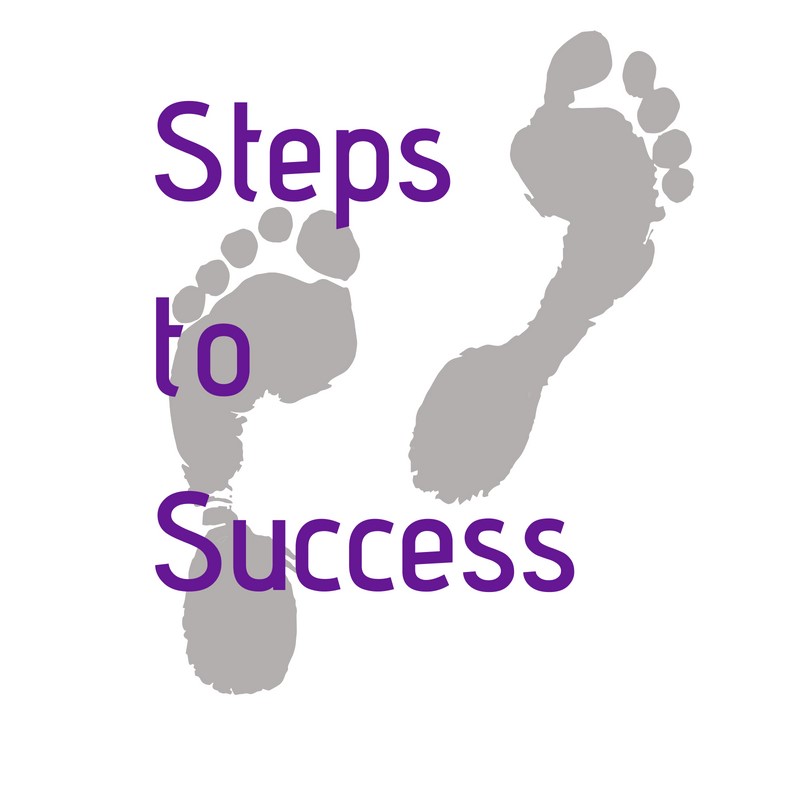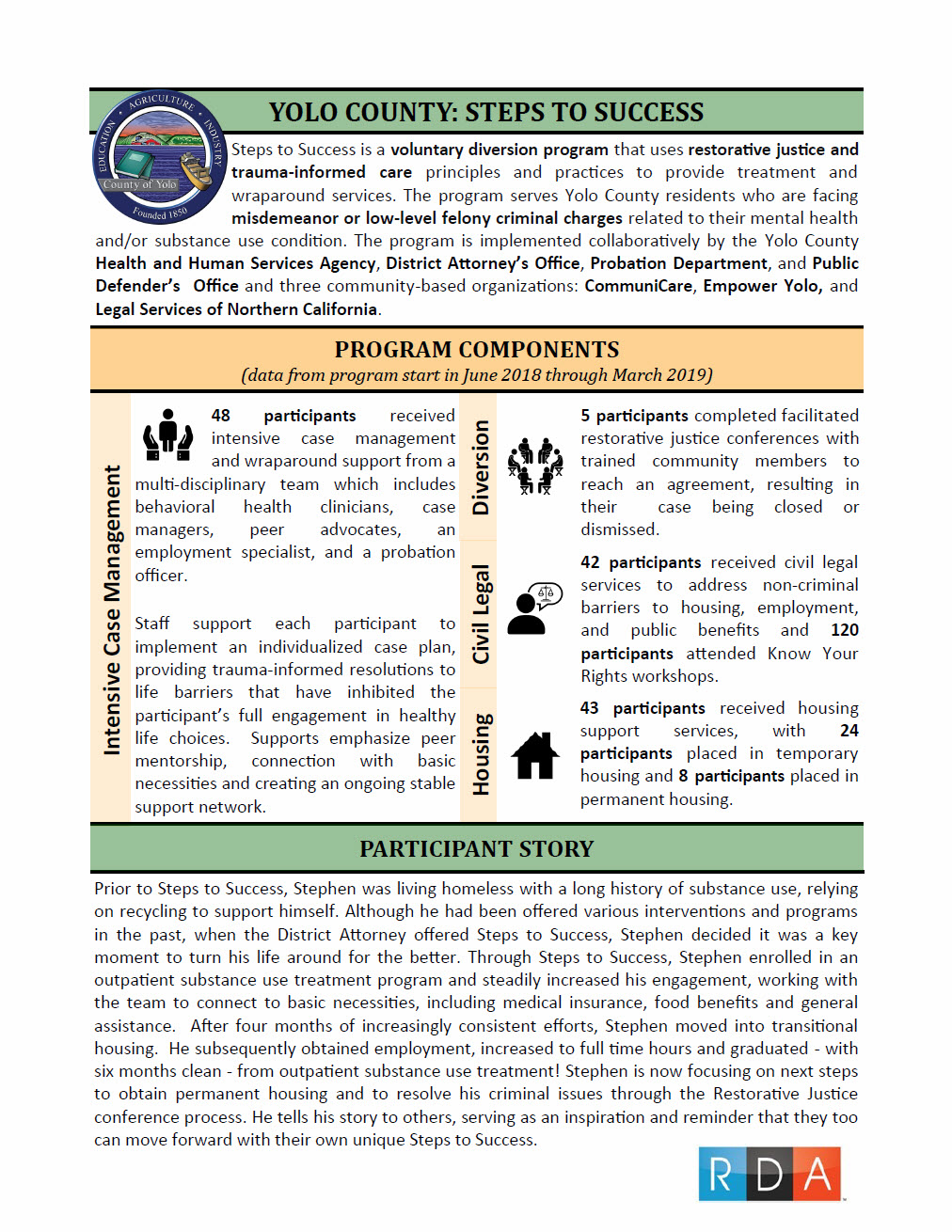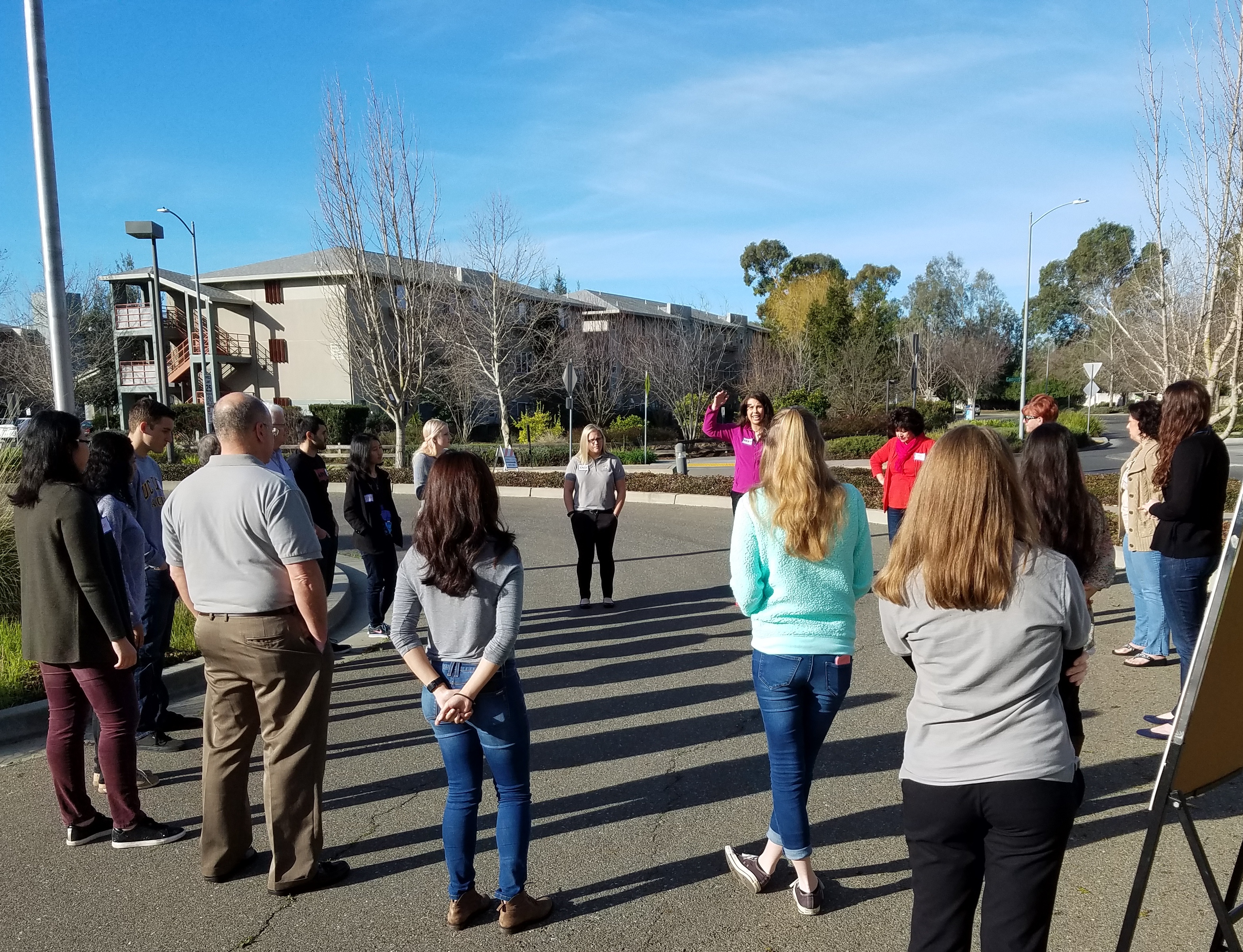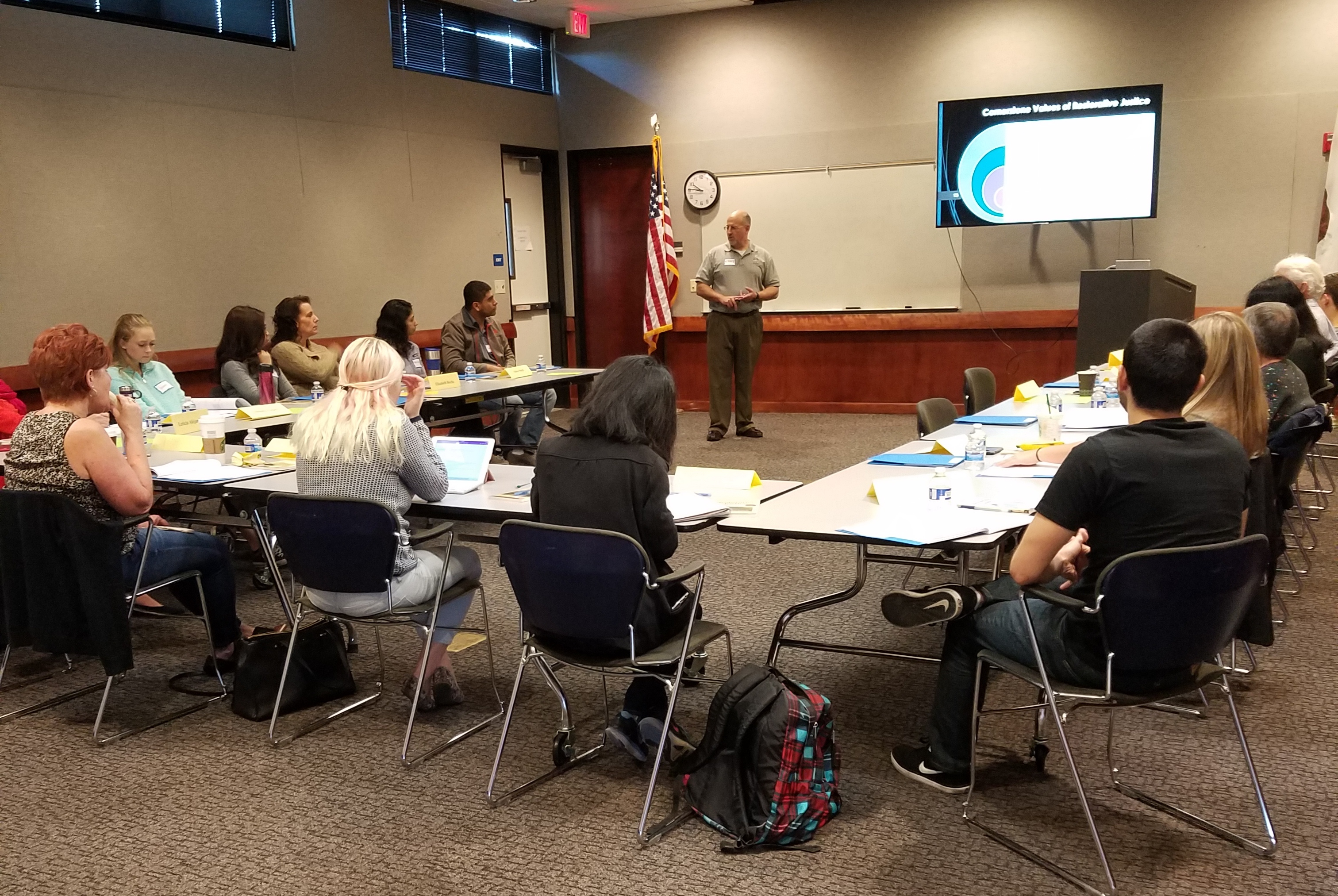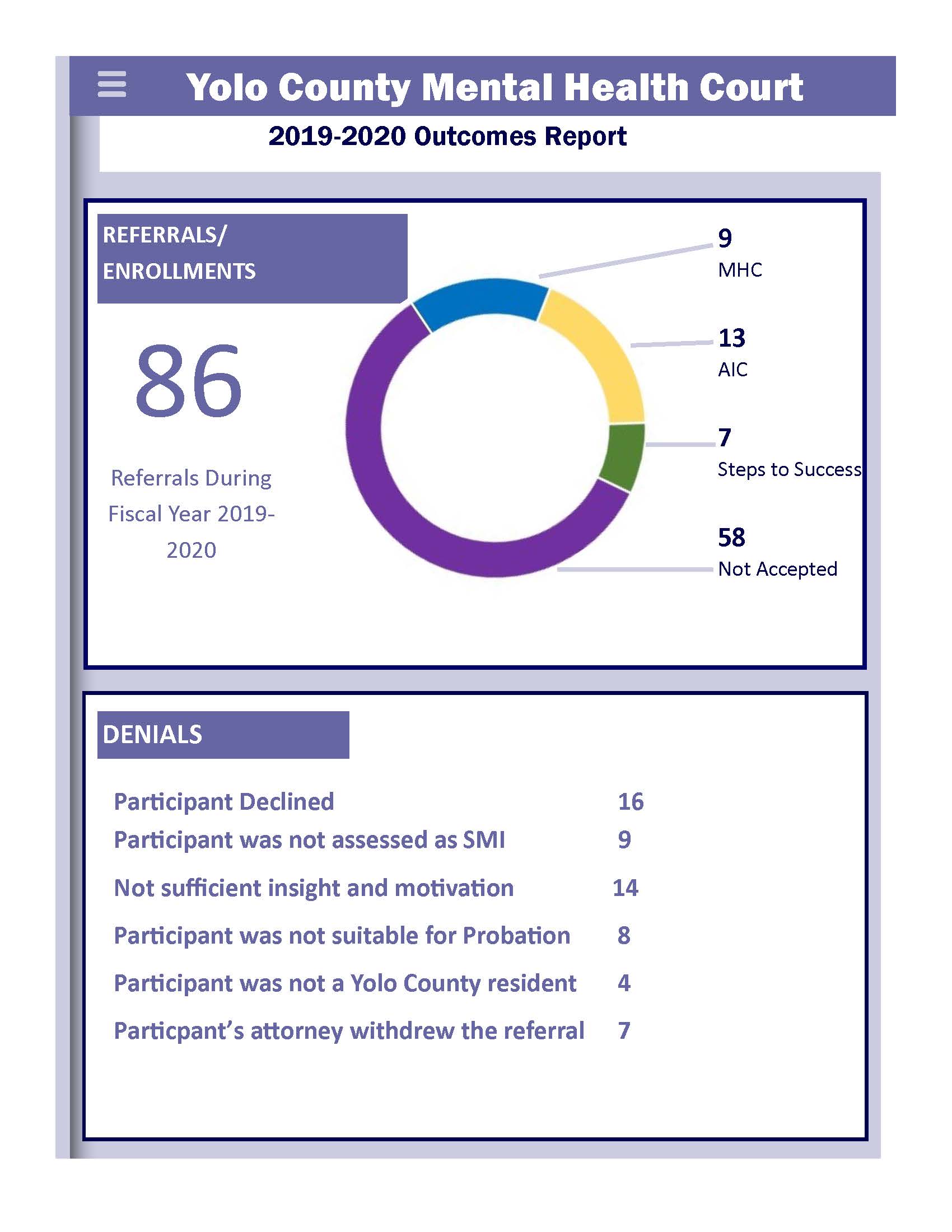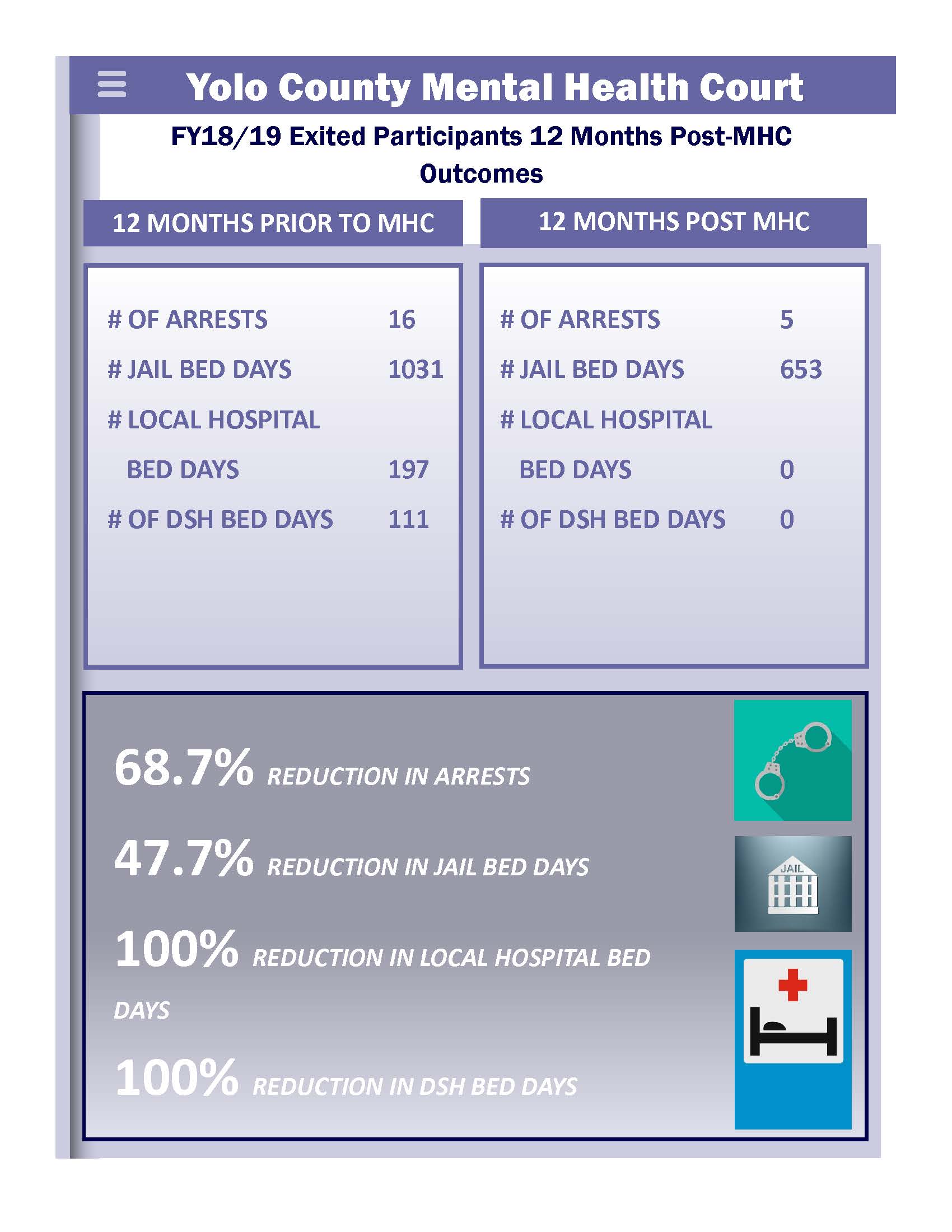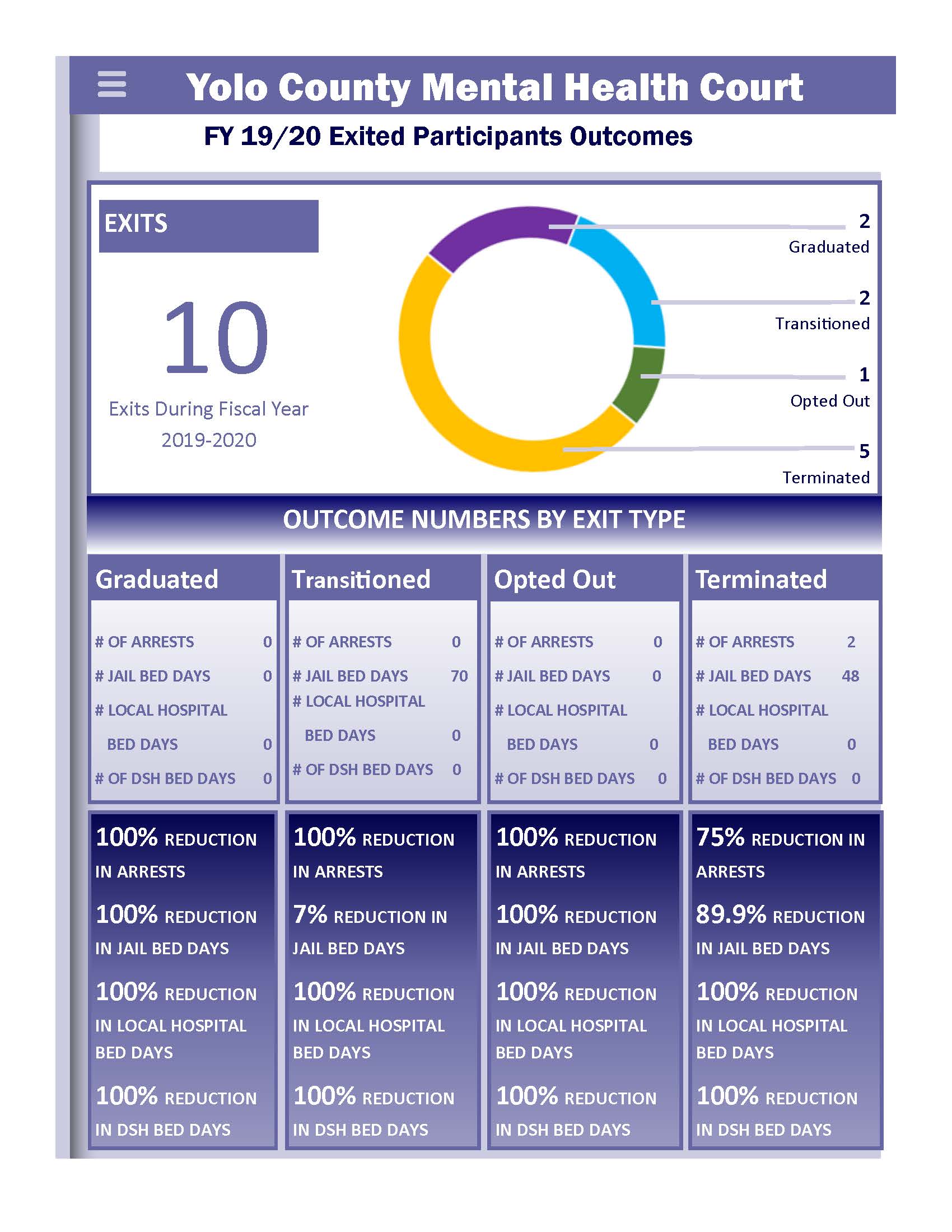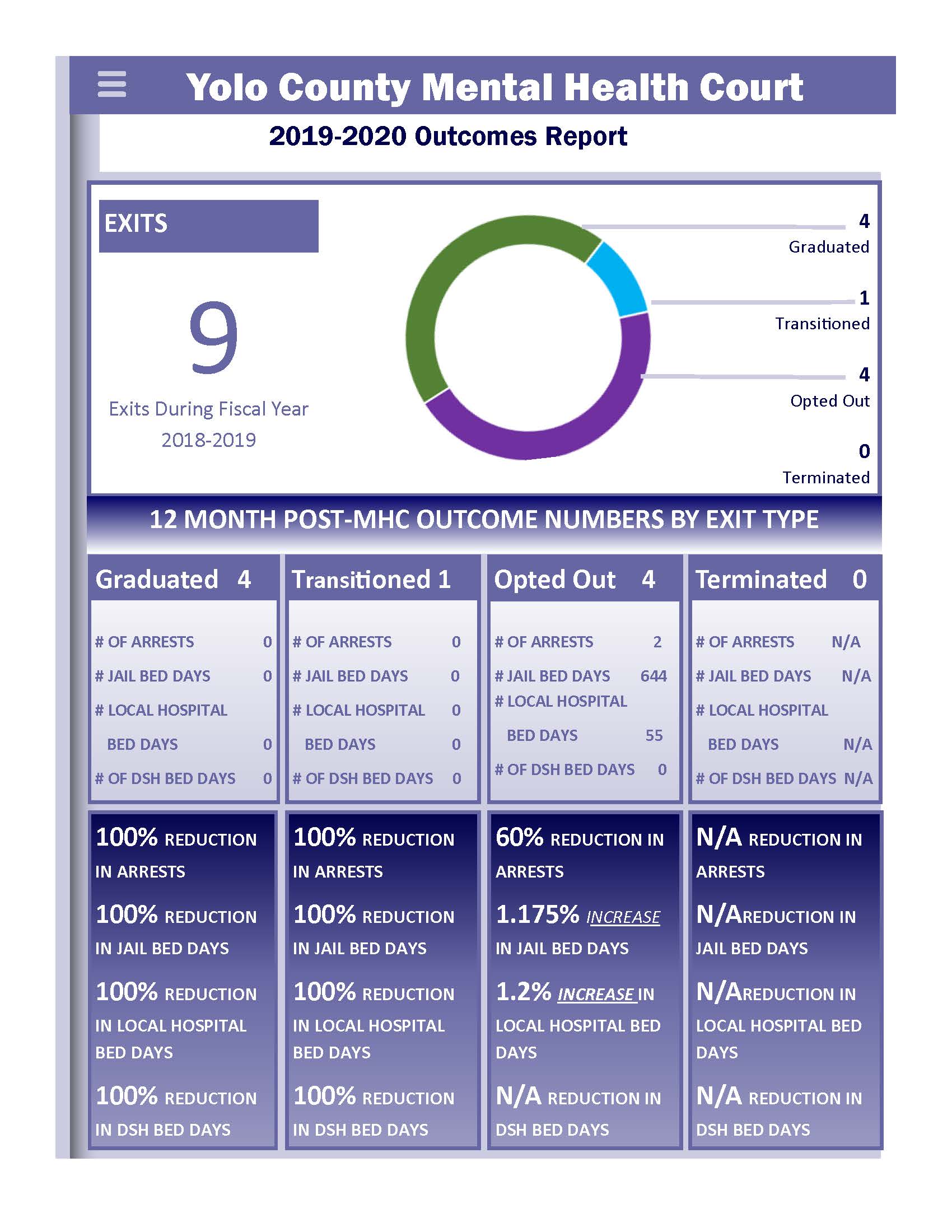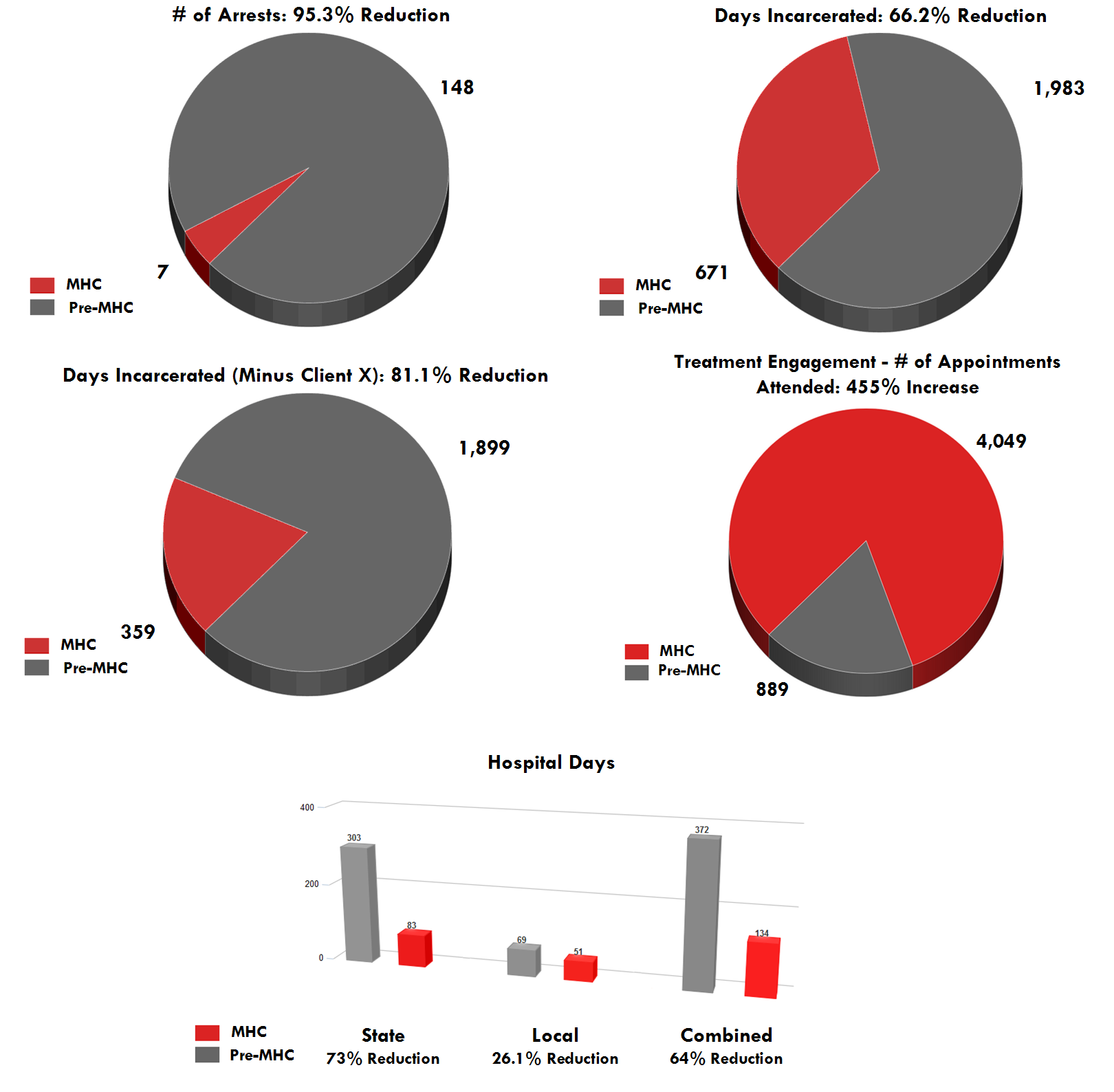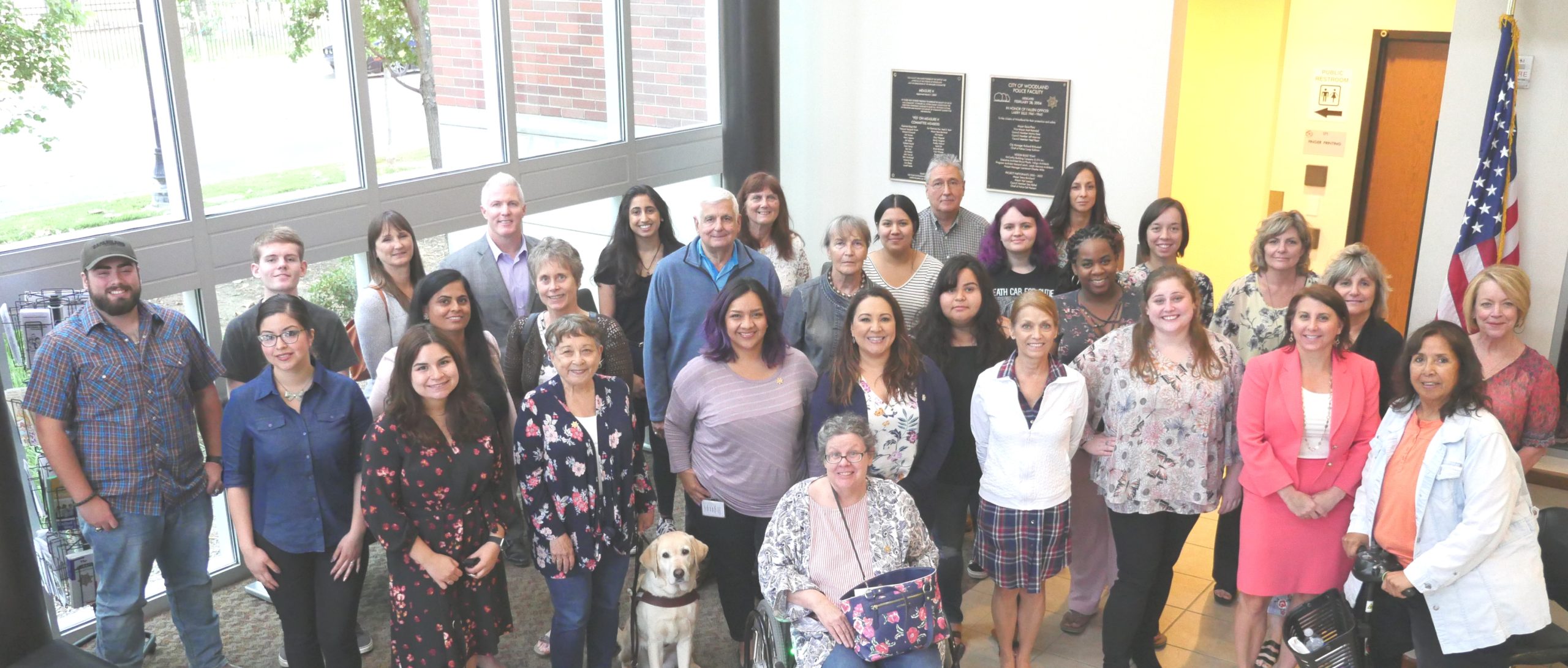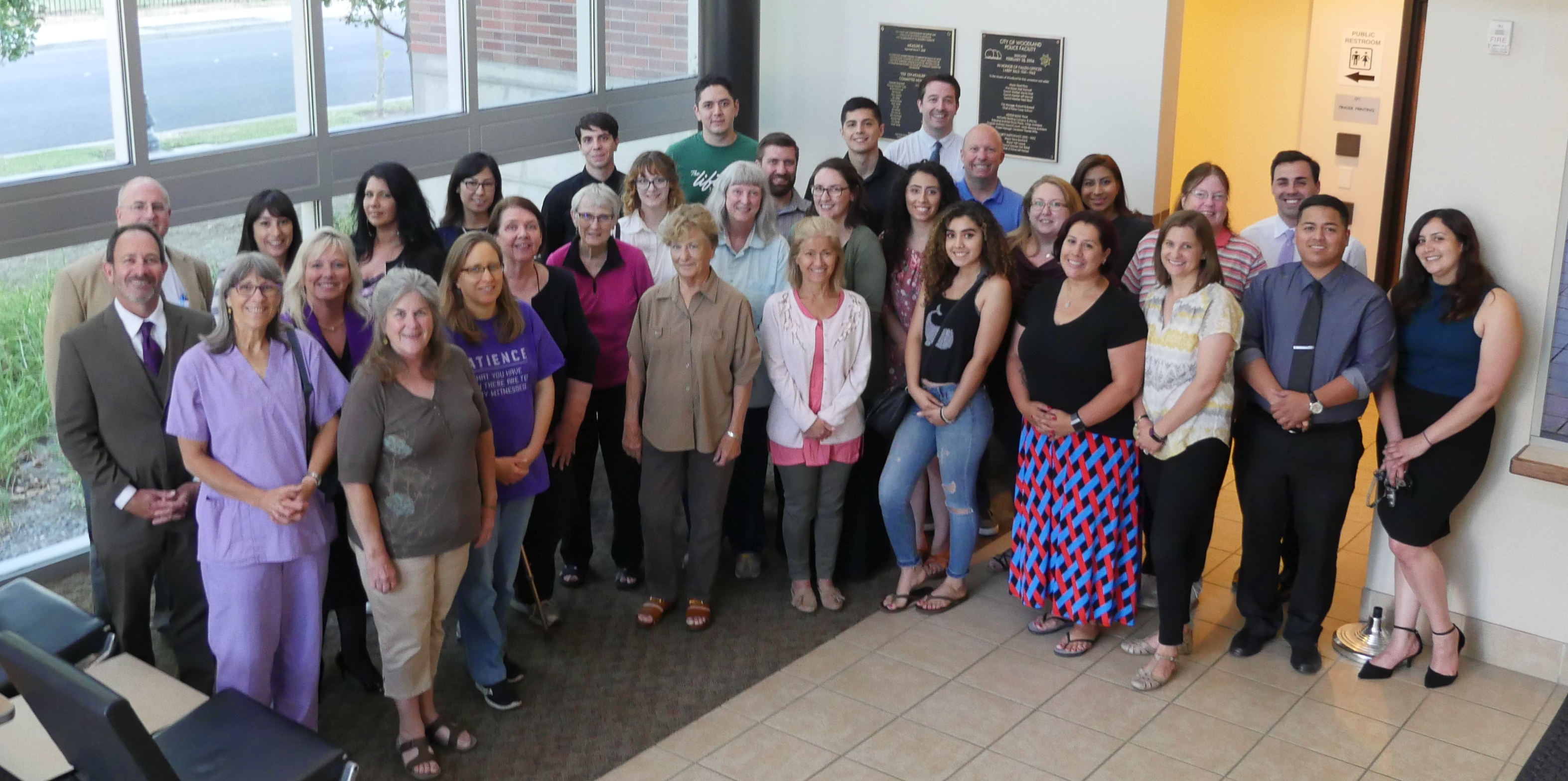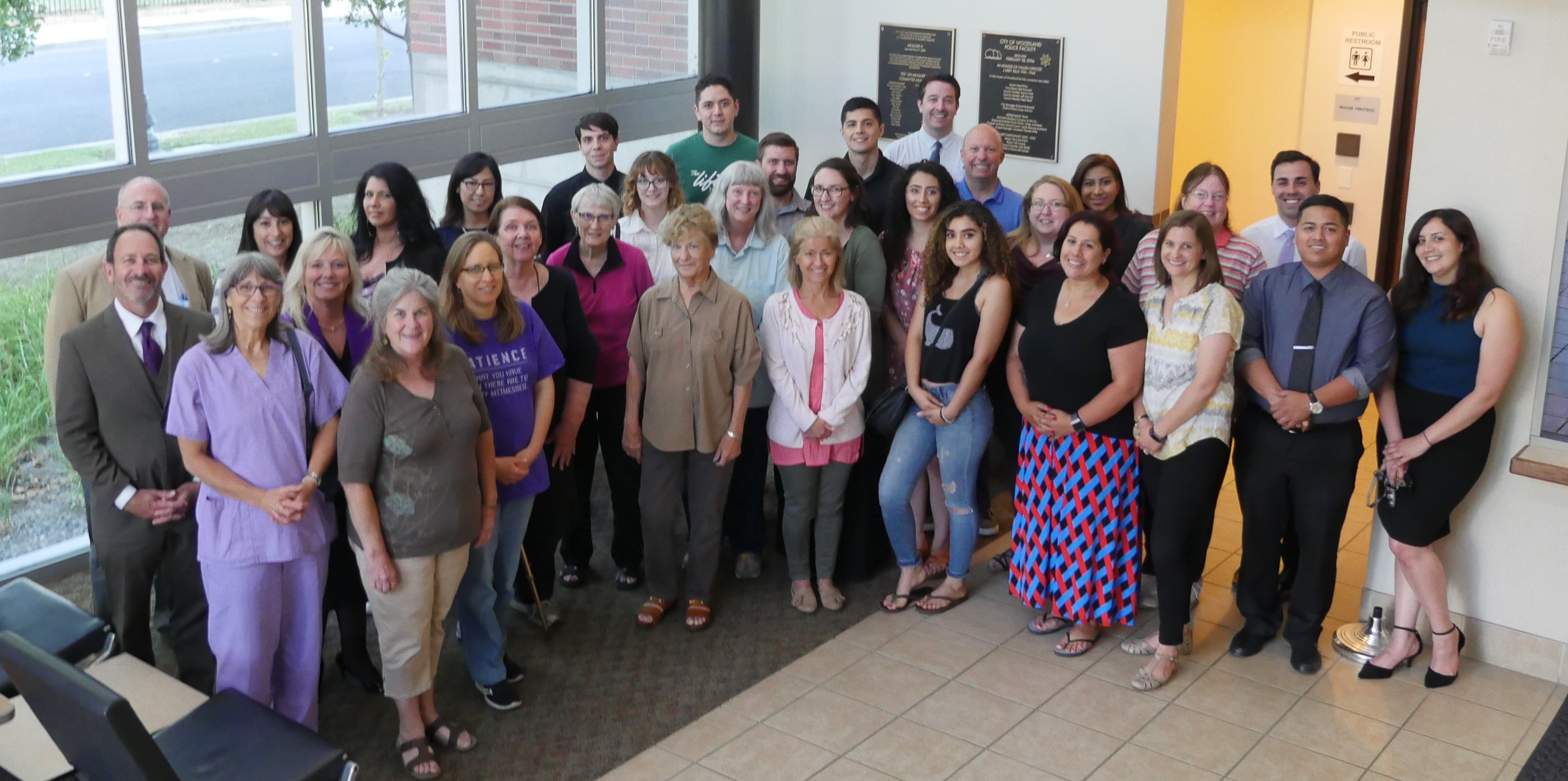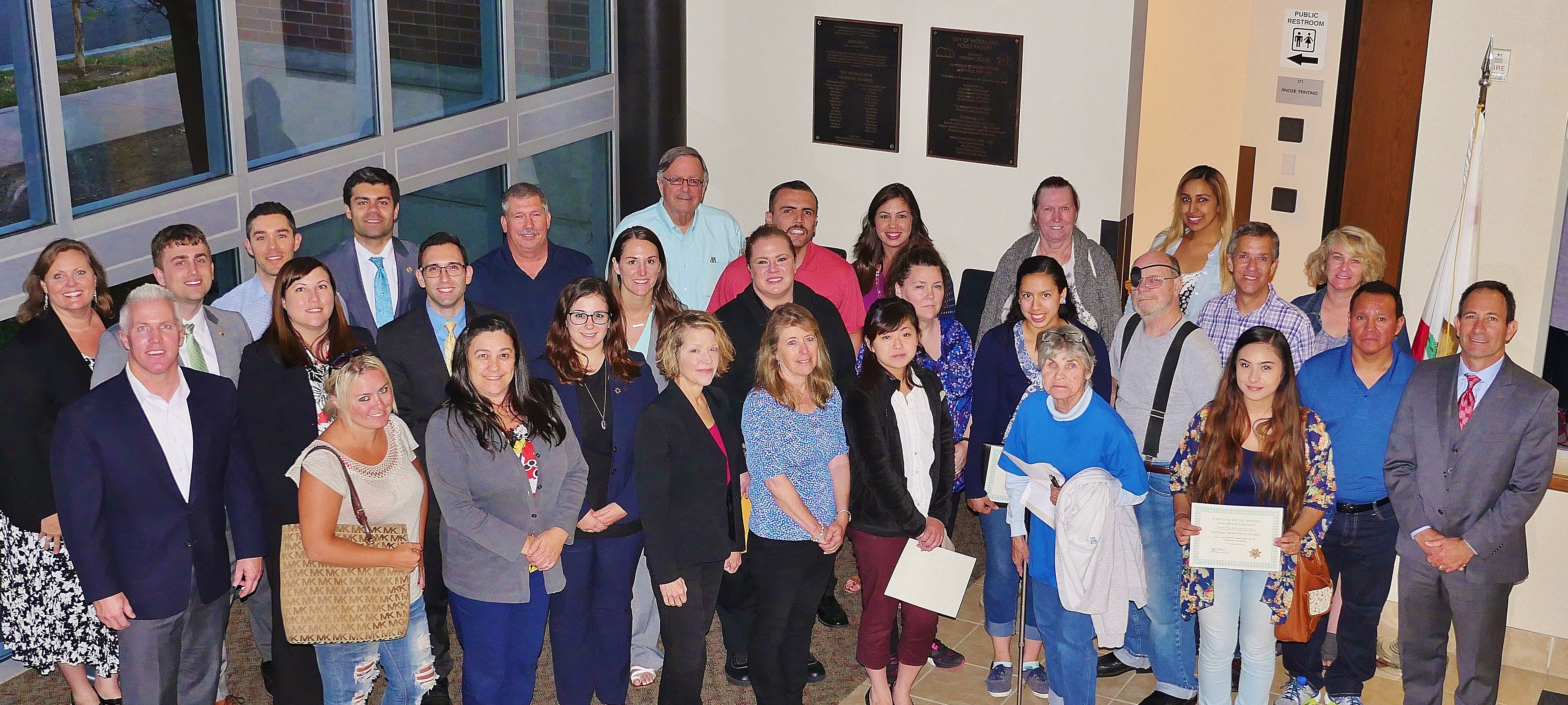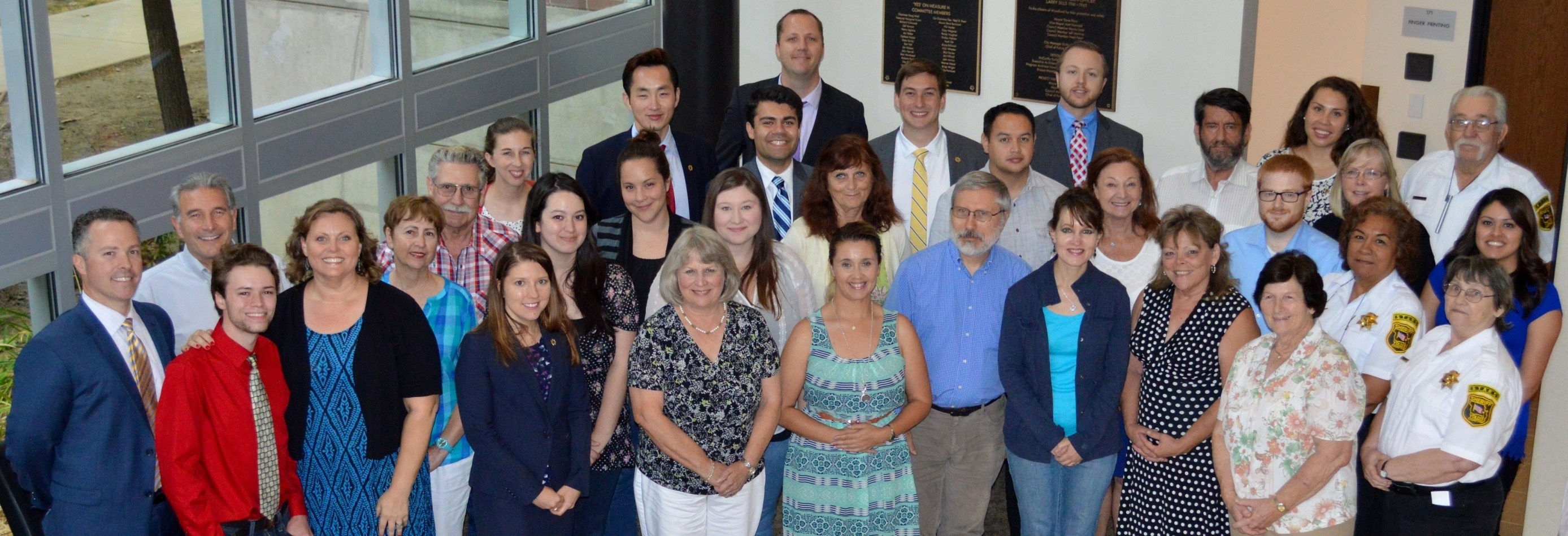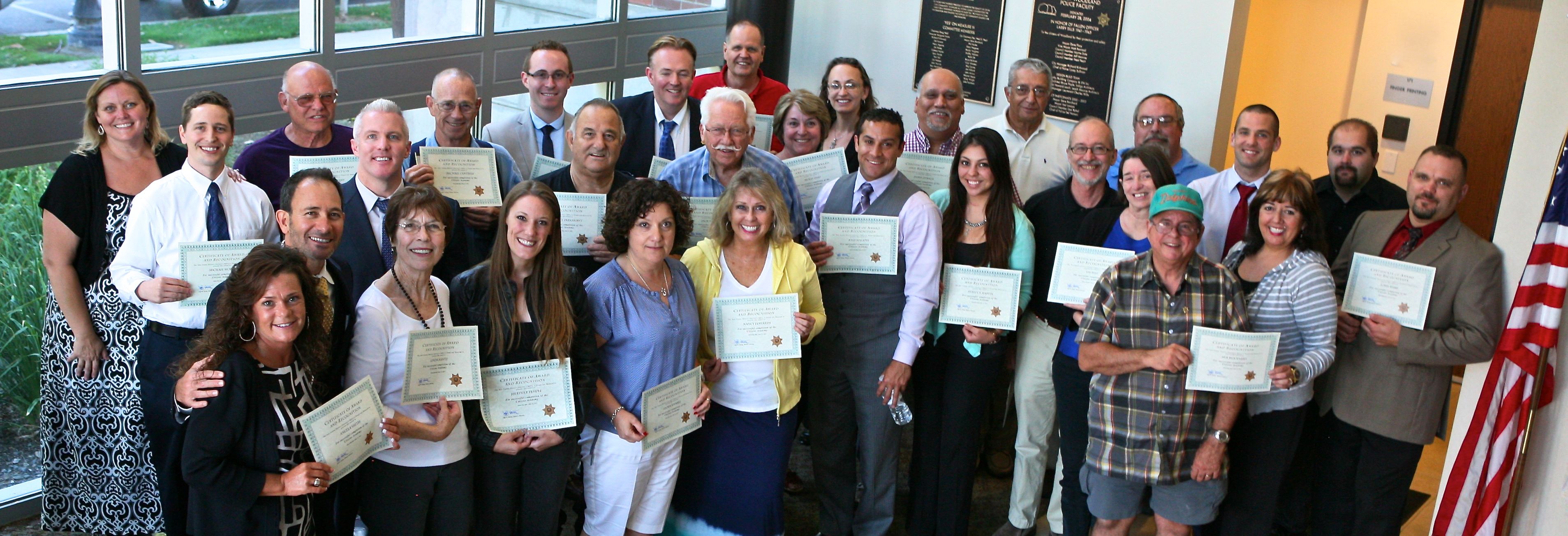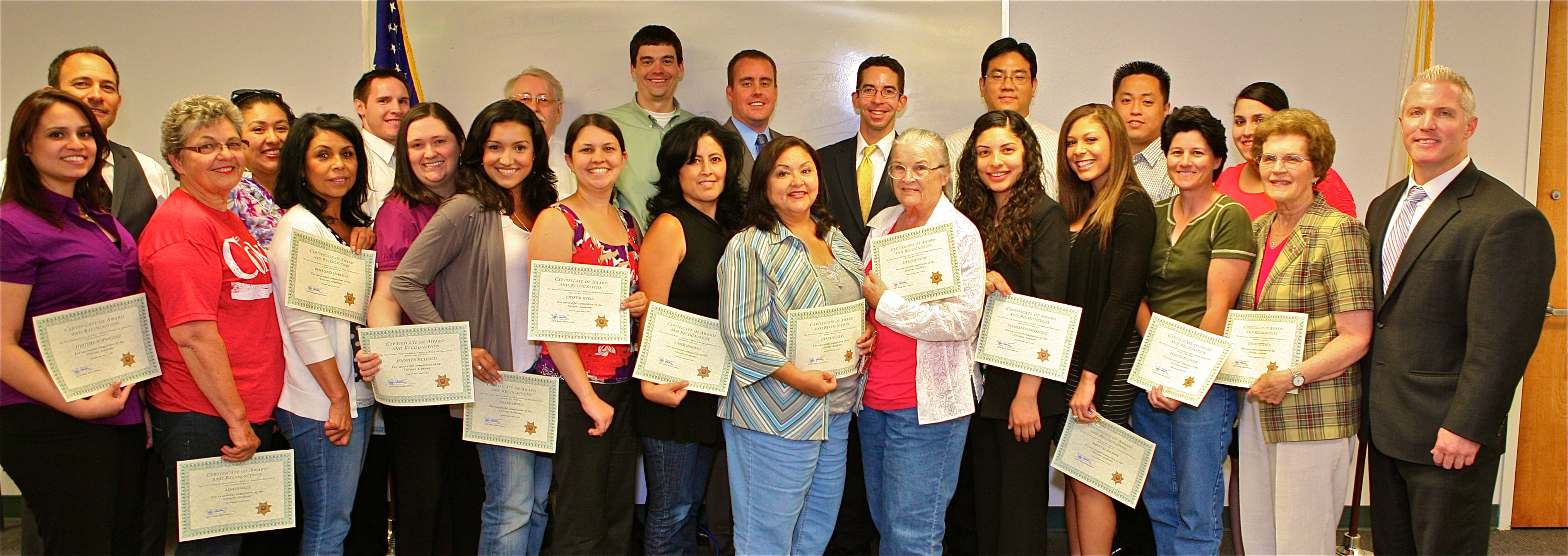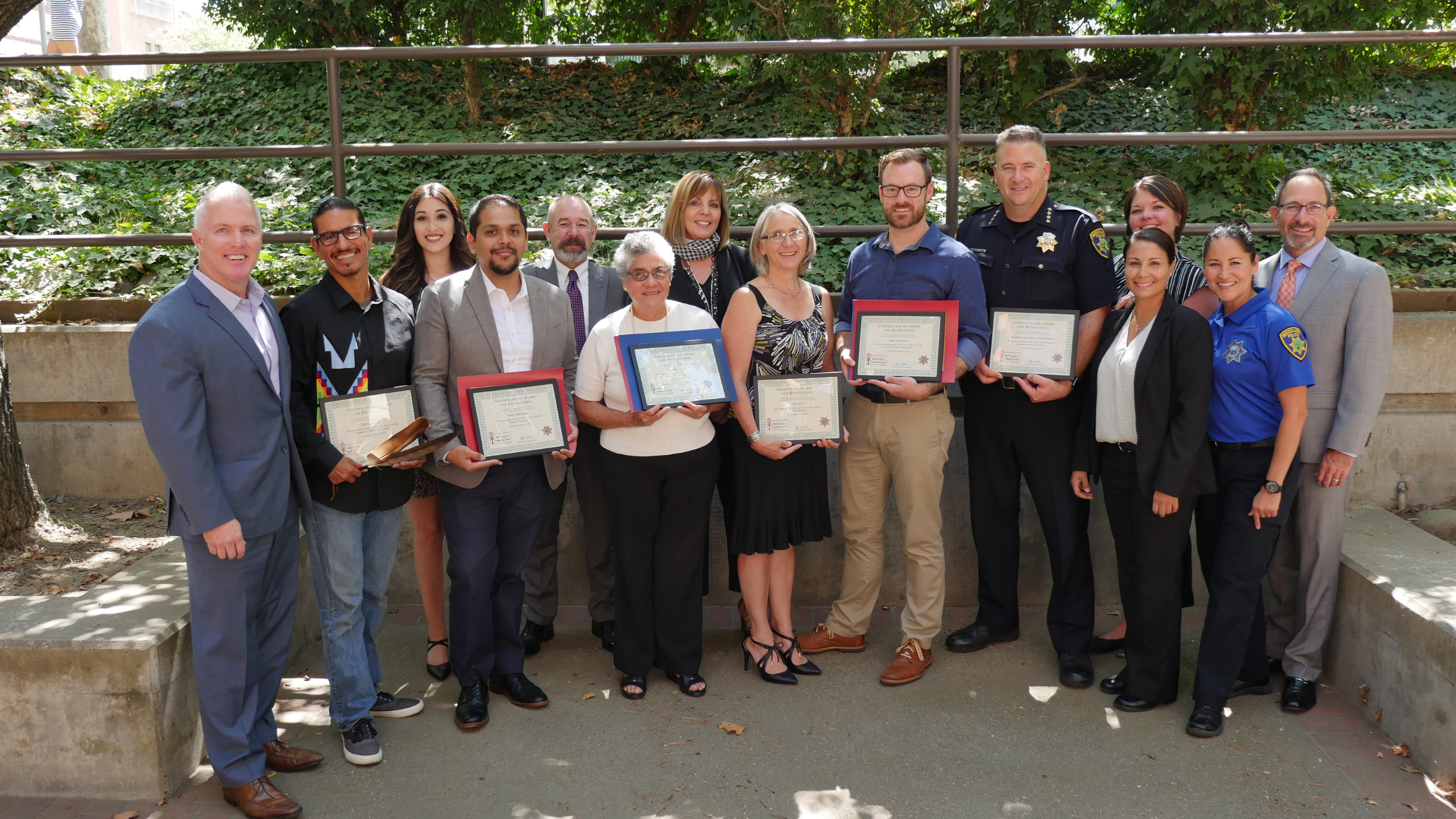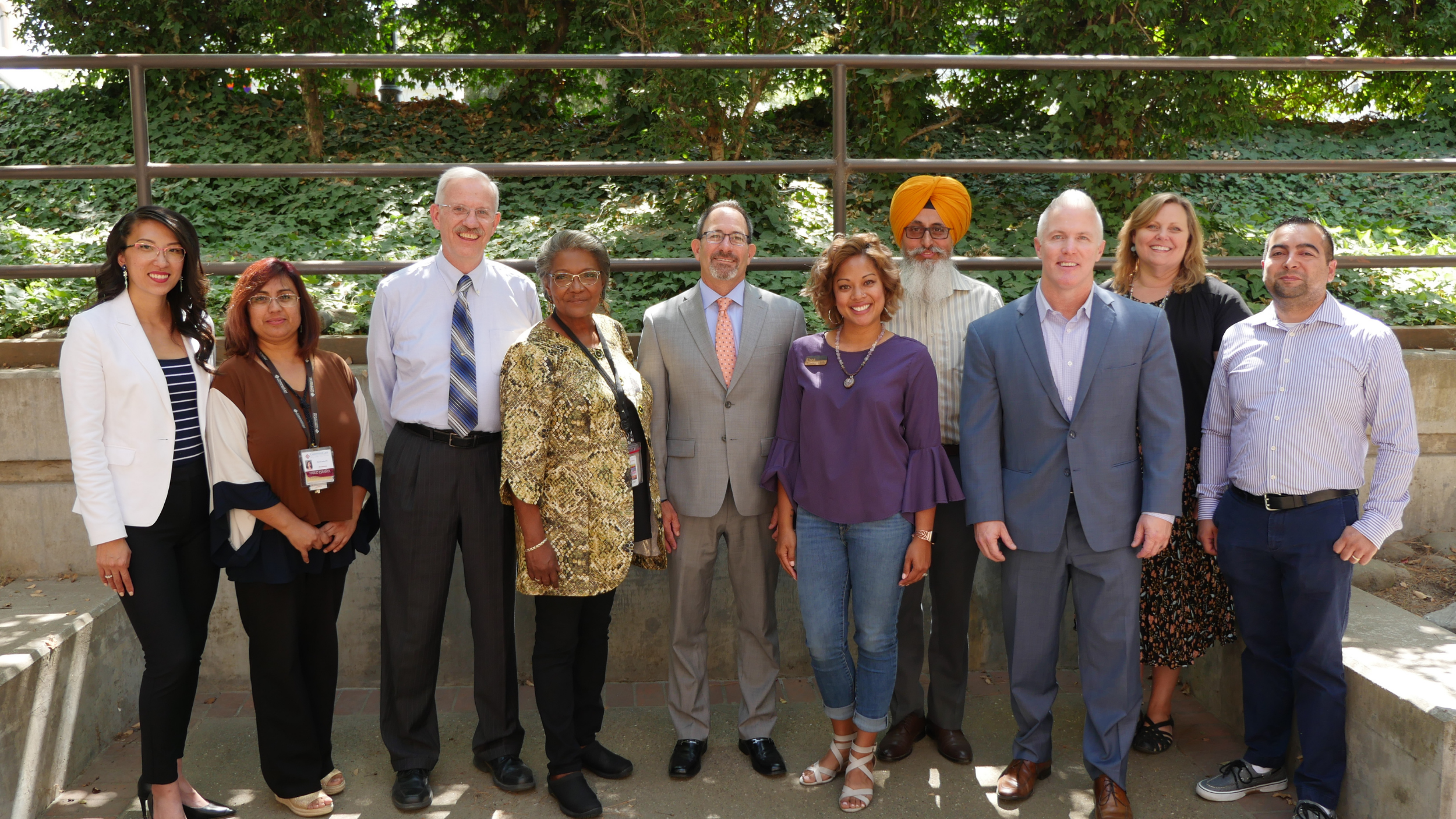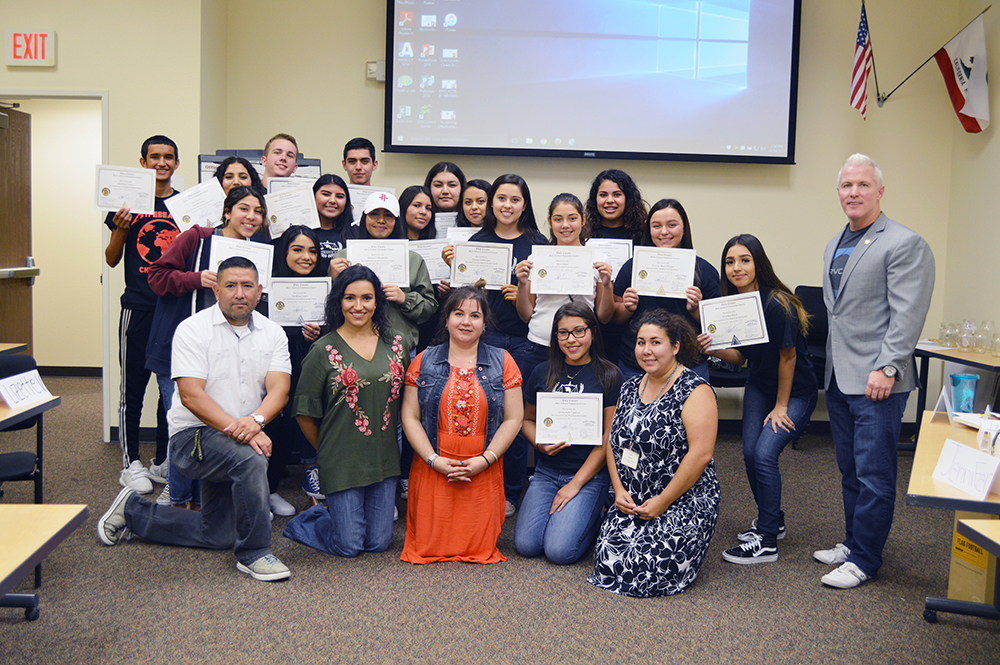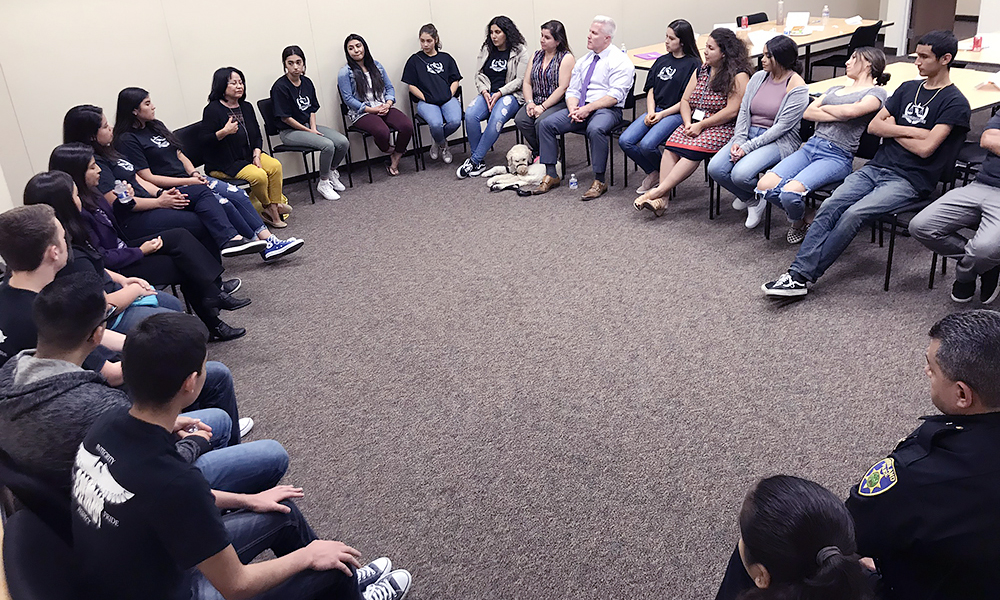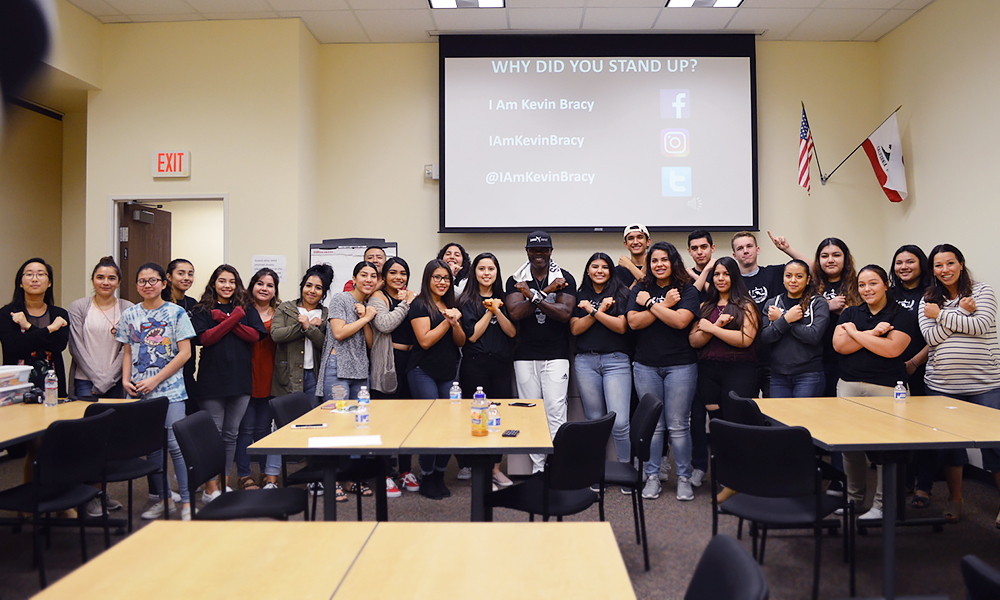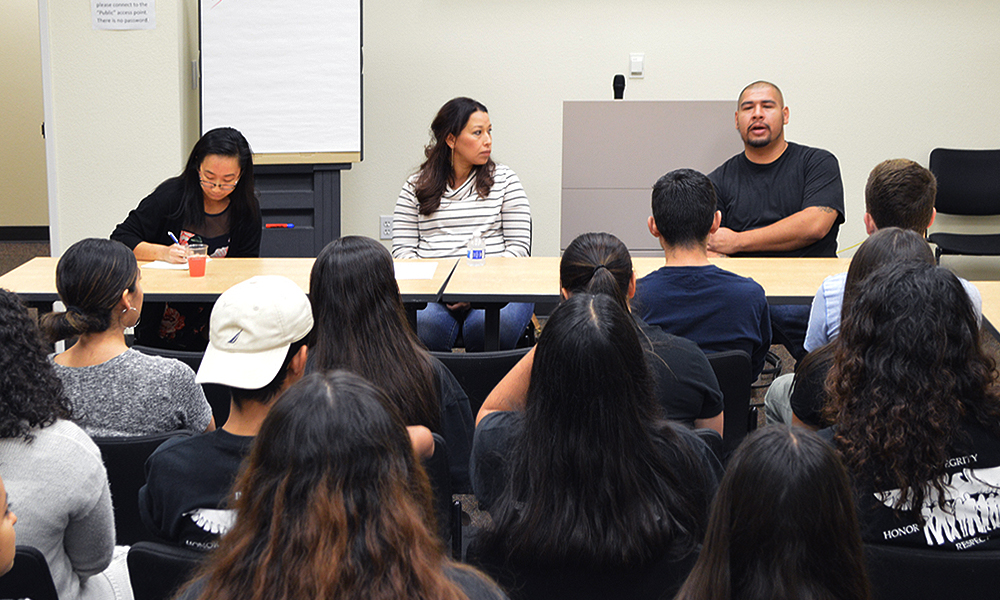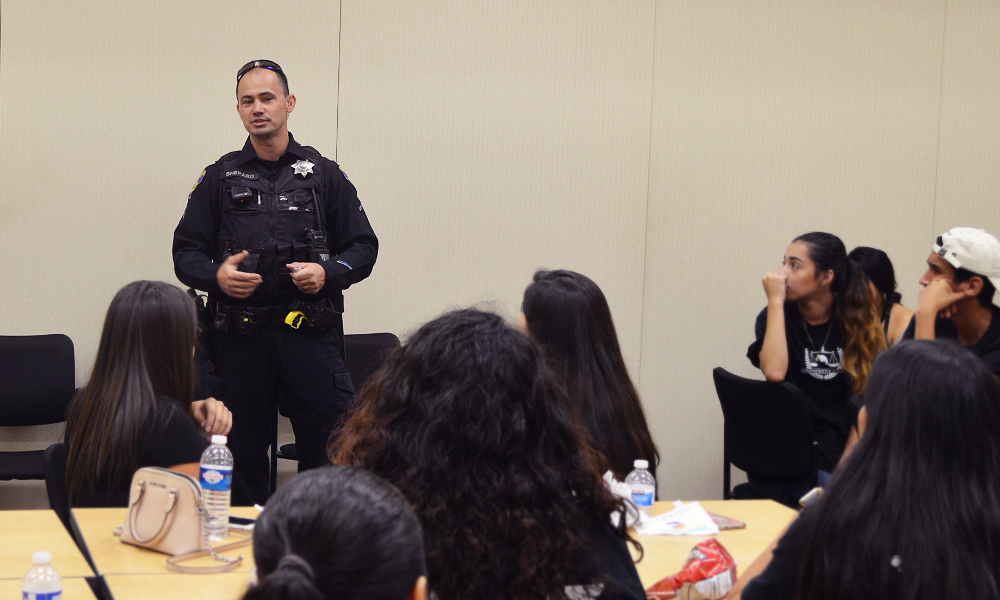Innovative Programs
GLIDE – Exploring the “Service” Paradigm
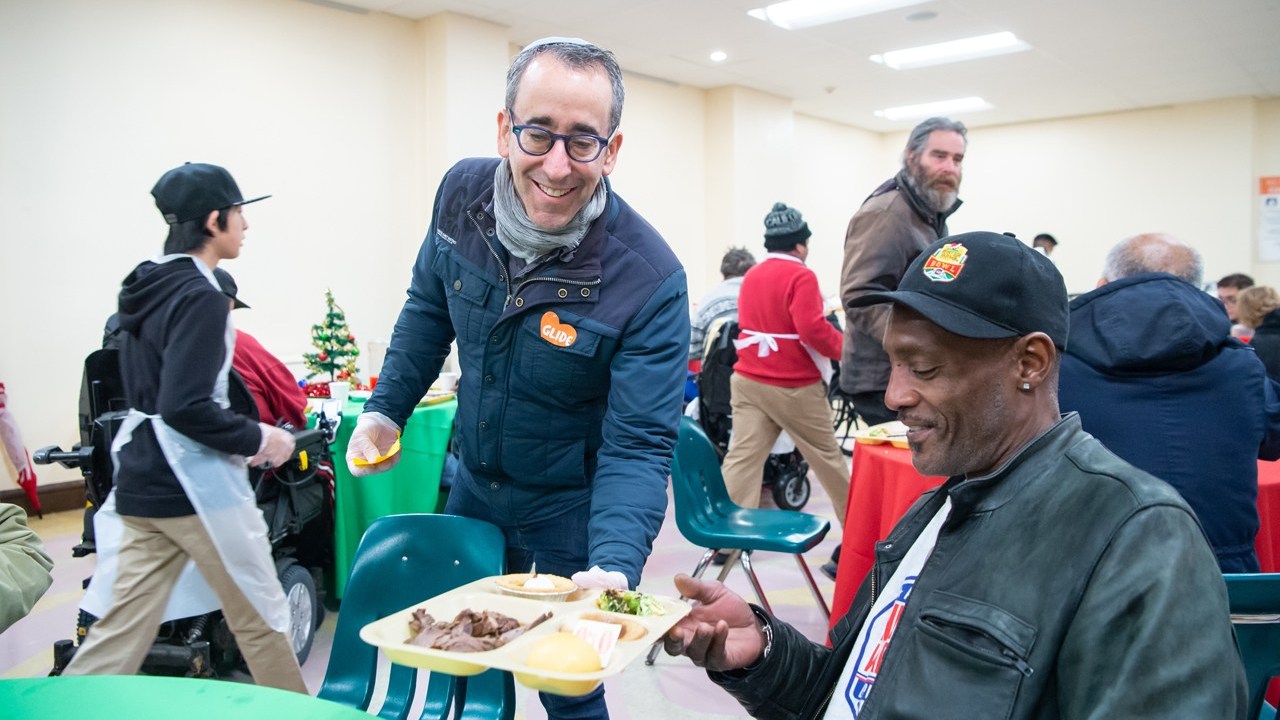
Rabbi Michael Lezak serving a guest at one of Glide’s daily free meals. Courtesy: Alain McLaughlin
Course Outline | LA Times Article | The Jewish News of Northern California Article
This program, co-created by Yolo County District Attorney Jeff Reisig, in an immersion experience for public safety and civic leaders who are dealing with homelessness, addiction, mental Illness, poverty and despair in their communities This training is intended to help leaders explore their understanding of the ways traditional government organizations and community-based providers can better “serve” challenged communities together to improve the quality of life for all of our citizens.
Restorative Justice Partnership
Press Release: Yolo County District Attorney’s Neighborhood Court renamed to the Yolo Restorative Justice Partnership
*** ALERT! ***
ALL CONFERENCES ARE BEING HELD VIRTUALLY IN AN ABUNDANCE OF CAUTION REGARDING RECOMMENDATIONS TO COMMUNITY GROUPS IN WAKE OF COVID-19.
THANK YOU FOR YOUR UNDERSTANDING. -Restorative Justice Partnership
What is Restorative Justice Partnership?
Restorative Justice Partnership (RJP) is an adult criminal diversion program. RJP uses the principles of restorative justice to resolve offenses outside of the traditional court room. Participants meet in a relaxed setting to discuss their conduct with members of the local community panelists in what is called a conference. The conference is designed to hold participants accountable by helping them recognize the harms caused by their conduct. Then the panelists, participant, and victim (when present), can come up with a collaborative solution designed to address those harms in a way that is restorative rather than punitive. Restorative Justice Partnership’s volunteers help victims, participants, and their communities to move forward in a positive direction.
How It Works
RJP is the core program in the Yolo County District Attorney’s restorative justice diversion suite, which also includes RJP Full Service Partners (FSP).
RJP volunteer panelists represent the community’s needs, interests, and perspectives with respect to the crime committed. Volunteers meet directly with the offender in a face-to-face facilitated conference. They serve to help participants reconnect and engage positively with the community. During the conference, volunteers 1) name the harms the community experiences as a result of the crime, 2) ask questions of the offender to understand the circumstances around the crime, and 3) decide together with the offender the steps that are necessary to make things right (as much as possible). This face-to-face dialogue is designed to encourage accountability on the part of the offender and remedy the situation as fully as possible.
Eligibility Criteria
The District Attorney is exclusively authorized to establish, modify and apply eligibility criteria for its restorative justice diversion programs. The overall aim of these diversion programs is to reintegrate participants back into the community and promote self-sufficiency, while stopping the cycle of recidivism.
For all cases, the District Attorney will determine eligibility on a case-by-case basis working in collaboration with the law enforcement agency within whose jurisdiction the offense occurred. This eligibility criteria and misdemeanor offense list were developed in collaboration with Yolo County law enforcement agencies (LEA).
Join the RJP Volunteer Team
The Yolo County District Attorney’s Office is always seeking community volunteers to serve as panelists and facilitators in restorative conferences. The RJP panelist training course is a prerequisite for service in any of the DA’s restorative programming options. Submit a volunteer application today! Please register at My Volunteer Portal and apply. We look forward to welcoming you to the Restorative Justice Partnership Team!
You can regularly find Restorative Justice Partnership tabling at local colleges, universities, and community events. Students play a big role in helping to restore their communities by serving on our panels. Thanks to RJP’s minimal time commitment and flexible scheduling, anyone can serve! If you’re a student and need some extracurricular activities to boost your resume, RJP might be a perfect fit!
For more information contact: Maria Olmedo at maria.olmedo@yolocounty.org or call 530-908-3726.
Upcoming Training: TBD Apply online here
- Restorative Justice Partnership Panelist Training – The Panelist Training covers the basic principles of Restorative Justice, the 3-step Restorative Justice Partnership conference model, and communication skills applicable to the Panelist role.
- Restorative Justice Mock Conference Training – The Mock Conference training allows participants to act out a conference from start to finish and practice applying the techniques and skills they learned in training.
The 4 Pillars of Restorative Justice Partnership
Restorative Justice Partnership strengthens neighborhoods impacted by criminal activity in four ways…
Restore Victim Restorative Justice Partnership is victim centered by placing emphasis on the victim’s needs. It focuses on offenders making things right to the greatest extent possible with their victims. Offenders pay restitution to victims who have suffered monetary losses or property damage.
Restore Community Restorative Justice Partnership creates an atmosphere of inclusion and responsibility by providing a direct role for residents to oversee the resolution of offenses in their city. When appropriate the offender can complete community service aimed at improving conditions in the area impacted by the crime.
Restore Offender Restorative Justice Partnership offers offenders a second chance by avoiding a criminal conviction on their record upon successful completion of the program. Offenders are also restored by recognizing and addressing the causes and effects of their actions. This recognition allows for true restoration and connection to beneficial community resources that can improve overall quality of life.
Educate Offender Restorative Justice Partnership educates offenders by helping them understand why they committed the offense which led to their current situation. Offenders learn about anger management, decision making, the dangers of substance misuse, and other topics designed to change or modify their behavior.
Restorative Justice Partnership does not discriminate on the basis of race, color, national origin, religion, sex, disability, and/or age.
For More Information:
To read the entire Recidivism Study click on the following link: RJP Program Recidivism Study
To read the entire Restorative Justice for a Better Community click on the following link: Restorative Justice for a Better Community
Restorative Justice Partnership Printable Brochure | Restorative Justice Partnership Panelist Application | Download Restorative Justice Partnership Facilitator Application| Restorative Justice Partnership Facilitator Description | Restorative Justice Partnership Panelist Description | Restorative Justice Partnership Menu of Options – updated 7-15-21 | Participant Rights | Restorative Justice Partnership Research Paper | Restorative Justice Defined | 2014 Restorative Justice Partnership Year End Report | 2013 DCTV Interview
All downloads are in Adobe Acrobat PDF format. Please click here to get the free Adobe Acrobat Reader.
If you would like additional information about Restorative Justice Partnership, please call (530) 406-4516, or email neighborhoodcourt@yolocounty.org.
Homeless Neighborhood Court Pilot Program
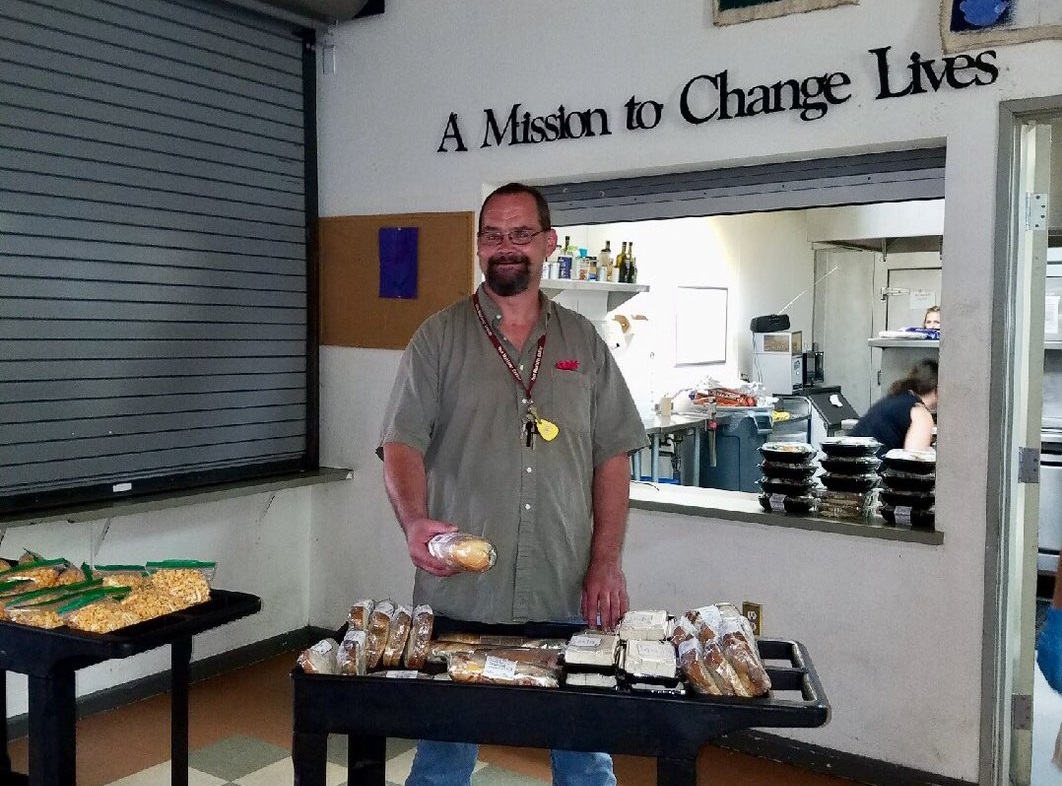
Homeless Neighborhood Court graduate Dan Walker preparing meals for the homeless at Fourth and Hope, where he is currently employed.
“Homelessness is a serious issue that needs to be addressed in a constructive fashion, and we are committed to being part of the solution. The endless cycle of arrests and jail sentences has clearly failed. It is time for a new approach that focuses on the causes of homelessness and promotes self-sufficiency.” – District Attorney Jeff Reisig
Homeless Neighborhood Court (H-NHC) began as a pilot project funded by Neighborhood Court’s 2015 Justice Assistance Grant (JAG) award. The project’s goal was to divert criminal charges for individuals identified by law enforcement agencies, the Health and Human Services Agency, or the District Attorney’s Office as transient.
H-NHC used a restorative justice conference process similar to the standard Neighborhood Court program, with the additional component of a Social Worker to assist the client during their engagement with the program. Program clients often included individuals afflicted with co-occurring mental health and substance abuse disorders, who required a high level of attention and assistance to successfully reintegrate into society. The Social Worker engaged with participants to develop a case plan addressing four dimensions: housing, self-sufficiency, behavioral health, and physical health. They provided support to ensure the successful fulfillment of case plan objectives. As a result, 81% of program clients who participated in the restorative justice conference through H-NHC went on to graduate from the program.
H-NHC operated from fall of 2015 through 2018, but ultimately ended due to lack of staffing and funding when the grant term ended. Many of the program’s participants transitioned to new the Steps to Success program funded by a Prop 47 grant. Yolo County Health and Human Services Agency, in partnership with the Yolo County District Attorney, CommuniCare, and the Probation Department, are currently pursuing Prop 47’s Cohort II grant funding to support a Steps to Success program expansion which would address the same population and core needs identified through H-NHC.
The Chronicles of Justice Episode 3: NHC Homeless Restorative Justice Program
H-NHC Participant Perspectives
Neighborhood Court’s Local Evaluation Plan (LEP) team for the Justice Assistance Grant (JAG) interviewed several H-NHC participants to gather feedback on their experience with the program:
• “They (H-NHC) stayed with me because they saw something in me that I did not—gave me chance.”
• “They had hope and faith in me,” “made me believe in myself,” “they opened the door and let me walk in…,” “if I did not have this program I would not be doing well”…[H-NHC]…”encouraged me.”
• “H-NHC gave me a place to call, they come knocking on your door, and took a chance with me, but I was ready to change.”
• “They [Deanna and Marshall] had hope and faith in me…made me believe in myself.”
• “They made all the paperwork easy—I was pretty anti-establishment.”
• “Not to give up. If things don’t work out, keep trying, move to something else, it taught me persistence pays off.”
• “To make adult decisions, allowing yourself to feel—no self-blame,” “learning who I am,” “showed me the road but did not decide the direction…that mistakes are okay,” “learned that it is okay to ask for help because I can’t do everything myself.”
• “We need more programs like this,” “[I] wish there was more transitional housing,” “maybe [I could] be a peer mentor to others to set an example.”
H-NHC in the News:
Steps to Success
Steps to Success: A Restorative Justice Program
Neighborhood Court is expanding to better serve the needs of participants struggling with mental health and addiction issues through a program called Steps to Success (S2S). S2S is part of the Yolo County District Attorney’s growing Restorative Justice diversion suite. This program provides a diversion option to adults with mental health and/or substance use disorders who are facing criminal charges related to their condition and are ready to engage in treatment. S2S is a collaborative effort with the Yolo County’s Health and Human Services Agency, Probation Department, CommuniCare Health Centers, community based service providers, and local law enforcement agencies. The main goals of the S2S program are to:
- Assist participants in gaining access to medical treatment so they can begin the road to recovery.
- Develop a case plan with a case management team designed to connect the participant with assistance and public programs that can offer relief to their current situation.
- Help participants to reintegrate themselves within the larger community.
Program participants undergo an assessment process and if eligible are connected to a clinician or case manager. The clinician/case manager, then aids the participant in making positive steps on a case plan highlighting four main areas: self sufficiency, behavioral health, physical health and housing. This program also emphasizes positive re-engagement with the local community through participation in a restorative conference. The S2S conference is based on the Neighborhood Court model, but includes the case manager/clinician in the process. Recently, the S2S team reviewed data from June, 2018 through March, 2019 and prepared a report, which can be read below, to measure the success of the program.
Full-Service Partners
Participants who would be eligible for S2S, but are already receiving case management through the county or other organizations, are eligible to participate as a Neighborhood Court Full-Service Partner (FSP). The process is very similar to S2S, but does not require an initial assessment or connection to case manager or clinician. Instead, DA staff coordinate with the participant’s existing case manager to facilitate the conference process when the participant is deemed ready to engage. The conference process is the same and performs the same function as in S2S of increasing the participant’s accountability, while reinforcing positive community engagement and adherence to their case plan.
Eligibility Criteria
The District Attorney is exclusively authorized to establish, modify and apply eligibility criteria for its restorative justice diversion programs. The overall aim of these diversion programs is to reintegrate participants back into the community and promote self-sufficiency, while stopping the cycle of recidivism.
For all cases, the District Attorney will determine eligibility on a case-by-case basis working in collaboration with the law enforcement agency within whose jurisdiction the offense occurred. This eligibility criteria and misdemeanor offense list were developed in collaboration with Yolo County law enforcement agencies (LEA). Any exceptions to the below eligibility criteria require District Attorney Supervisor and law enforcement agency agreement. To read the entire Eligibility Criteria click on the following link: Diversion Elgibility
Join the Volunteer Team
The Yolo County District Attorney’s Office is always seeking community volunteers to serve as panelists and facilitators in restorative conferences. The NHC panelist training course is a prerequisite for service in any of the DA’s restorative programming options. Submit a volunteer application today! With a low time commitment and flexible scheduling, anyone can serve! Register at My Volunteer Portal and apply.
Prospective volunteers must complete both the Panelist Training and Mock Conference Training sessions. Training is held annually in Davis, West Sacramento, and Woodland in the Spring and Fall. Supplemental trainings on topics related to mental health, substance use disorder, and implicit bias are recommended for those considering participating in S2S conferences. Supplemental opportunities are provided several times a year. Volunteers must also complete a background check and observe a conference in order to serve as panelists.
- Neighborhood Court Panelist Training – The Panelist Training covers the basic principles of Restorative Justice, the 3-step Neighborhood Court conference model, and communication skills applicable to the Panelist role.
Volunteers may choose to participate in NHC and/or S2S. If you would like to volunteer for S2S, you must complete both NHC and S2S supplemental training sessions.
Mental Health Court
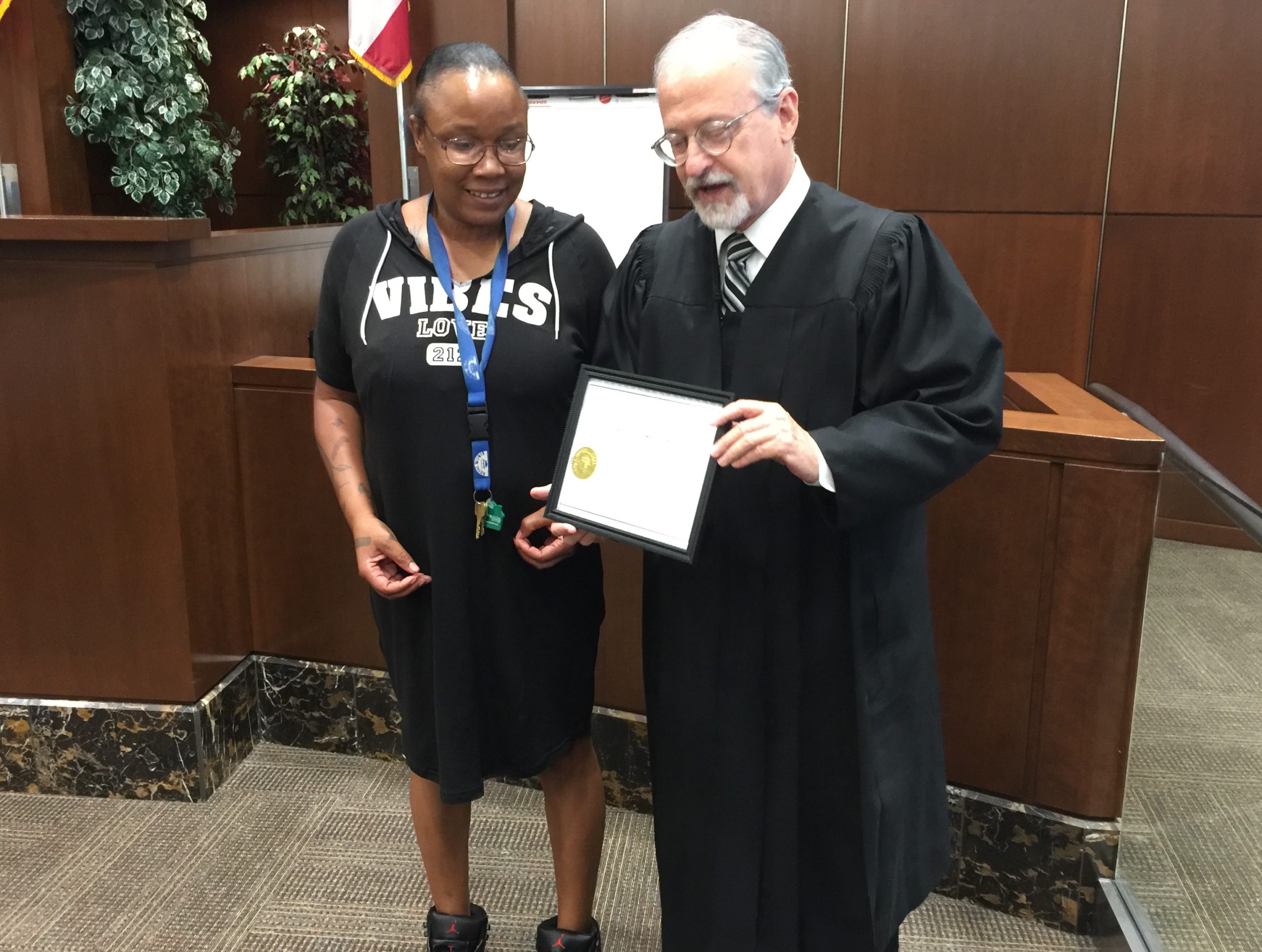
Mental Health Court graduate with MHC Judge David Rosenberg.
“Prisons are not the right place for those suffering from mental illness. We are committed to working with mental health professionals, judges and others to provide more appropriate and effective options for the seriously mentally ill.” – District Attorney Jeff Reisig
Since 2013, Yolo County prosecutors have been focusing more attention on defendants who commit crimes as a result of their serious mental illness. This program increases participant’s insight into their mental illness by connecting them with community treatment services, reducing recidivism and enhancing public safety. With that increased focus, the District Attorney was one of the Yolo County agencies instrumental in starting Mental Health Court (MHC).
MHC is a minimum 18-month collaborative court-based treatment and monitoring system for adult offenders with serious mental illnesses. The program is a partnership between the Yolo County Superior Court, Probation Department, Health and Human Services Agency, the Public Defender, and the District Attorney. MHC is a strategic program designed to effectively address the increasing number of seriously mentally ill defendants cycling through the courts and jails.
Founded in 2013, MHC serves up to 15 Yolo County residents at a given time who suffer from serious mental illnesses and charged with Misdemeanor or Felony offenses. The program focuses on 4 goals for program participants: improving treatment engagement, reducing recidivism, reducing jail bed days, and decreasing local and state hospital bed stays.
Program participants progress through four phases: 1. Orientation and treatment plan development, 2. Early recovery, 3. Active recovery, and 4. Sustained recovery. Progression through the four phases includes increasing days of sobriety, writing a reflective essay at the completion of each phase, and consistently participating in treatment.
The last phase of the program is a restorative justice component where participants spend 4-6 weeks recounting their crime and the circumstances that led to the crime. The participant acknowledges who was harmed by the crime and how they were harmed. Lastly, the participant is asked what needs to be done to makes things right.
The Yolo County Mental Health Court’s 2019/2020 Outcomes Report:
The Yolo County Mental Health Court recently published their 2019/2020 Outcomes Report. The Mental Health Court (MHC) received 86 referrals with 9 participants enrolled in MHC, 13 participants enrolled in Addiction Intervention Court, 7 participants in Steps to Success, and 58 individuals not accepted.
Impressively, this specialty court program contributed to a 68.% reduction in arrests, a 47.7% reduction in jail bed stays, a 100% reduction in local hospital bed stays, and a 100% reduction in Department of State Hospitals bed days. The entire visual report is below, or here in pdf format.
For the latest information on MHC, read the latest quarterly newsletter:
Collaborative Courts Newsletter October 2019
Collaborative Courts Newsletter July 2019
Read more about MHC’s program graduates:
Dennis Cortopassi | Jesse Fiero | Gary Wight
Mental Health Court program stats:
Mental Health Court
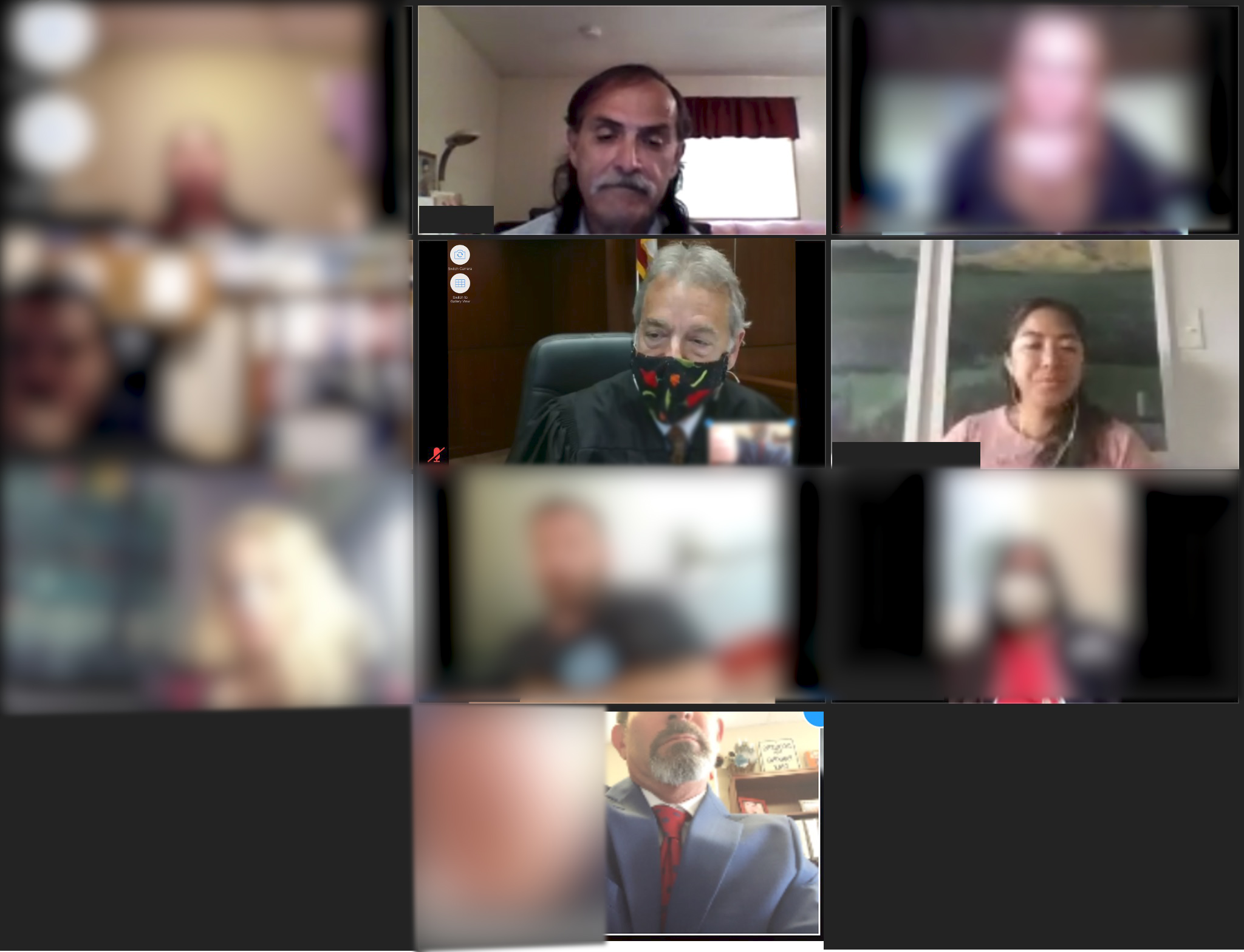
AIC zoom graduation of Stephen Scharl during COVID-19. The Zoom graduation allowed his daughter from Hawaii to join the celebration.
“Our office is committed to supporting this innovative collaborative, where certain non-violent drug addicted offenders are given the opportunity to accept responsibility for their illegal conduct. Participants work with trained treatment providers and other professionals to conquer their addiction and reclaim their lives from the effects of drugs and poor choices.” – District Attorney Jeff Reisig
Addiction Intervention Court (AIC) is a specialty court program that serves up to 20 individuals at a time who struggle with substance use disorders and are involved in the criminal justice system as a result of their addiction. The program is a collaborative effort between the Yolo County Superior Court, Yolo County Public Defender, the District Attorney’s Office, the Probation Department, and the Health and Human Services Agency. The program provides intensive support services and supervision aimed at increasing a participant’s overall quality of life while reducing recidivism.
In early 2017, the partners on this project began revising and reviewing the previous Felony Drug Court program that had existed in Yolo County for decades. AIC is the result of that reform; shifting the focus from a reactionary Felony Drug Court that was used as a last-ditch effort before sending an individual to state prison, to a proactive program designed to address addiction issues long before an individual gets to that point.
AIC utilizes a similar model to the successful Yolo County Mental Health Court program. Participants progress through four phases: 1. Engagement, 2. Transition, 3. Sustainability, and 4. Maintenance. Progression through the four phases includes increasing days of sobriety, drug and alcohol testing, participation in a 12-step treatment program or an equivalent program, obtaining employment and permanent housing, and decreasing the number of arrests. Program graduates are required to remain arrest-free for a minimum of 9 months, maintain a minimum of 180 continuous days of sobriety, and establish an exit plan with the program’s Clinician and Probation Officer.
The program is completely voluntary; AIC offers individuals who want to seek treatment for addiction issues a support system to help accomplish that goal. AIC uses a rewards-based system to encourage progression through the four phases, which may include, but are not limited to, gift cards, reduced reporting to the Probation Officer and AIC, reduction of fines and fees, letters of recommendation for employment and employment, and potentially the dismissal of charges upon successful completion of AIC and probation (at the discretion of the AIC team).
The last phase of the program is a restorative justice component where participants spend 4-6 weeks recounting their crime and the circumstances that led to the crime. The participant acknowledges who was harmed by the crime and how they were harmed. Lastly, the participant is asked what needs to be done to makes things right.
Participant’s Story
Crystal (not pictured on this page) was arrested in Yolo County for vehicle theft. When the DA’s charging deputy reviewed the case it was clear that she had a significant heroin addiction. The prosecutor referred her for an AIC assessment and she was accepted into the program where she is flourishing thanks to the help of the AIC team. Crystal’s mom sent a note expressing her gratitude for the program:
“Crystal came home for the weekend. I have my daughter back!! Thank you!!! If she had been in the county where we live? Go to jail…DO NOT collect $200.00. I’ve never seen a court system or community resource assistance program like yours ever! I am grateful to you, her probation officer, public defender, the DA and the Courts! Please express my gratitude for me! This was very heart wrenching and traumatic for me.”
Citizen’s Academy
THE 2022 CITIZENS ACADEMY WILL BE HELD IN PERSON AT THE WOODLAND POLICE DEPARTMENT COMMUNITY ROOM, HOWEVER, IF CURRENT HEALTH ORDERS, IN PLACE DURING THIS TIMEFRAME, PROHIBIT INDOOR GATHERING, THE ACADEMY WILL BE HELD VIRTUALLY VIA ZOOM.
APPLICATIONS BEING ACCEPTED THROUGH APRIL 3, 2022
The Citizen’s Academy is an eight-week course designed to involve diverse communities in participating in mutual learning about the criminal justice system. The goal is to educate the public and improve relationships and communication between the many different communities in Yolo County and the criminal justice system.
The eight-week academy meets once a week, usually on Thursday evenings from 6:00-8:30 p.m., beginning in mid to late April and running through early to mid June. For more information, or to enroll, please contact Wendy Wilcox at (530) 666-8356,wendy.wilcox@yolocounty.org. Class space is limited. Applicants must be 18 years of age and be a resident of Yolo County. The application deadline is during the first week of April annually.
Lauren Keene from the Davis Enterprise wrote an article about our Week 4 class, “High Profile Cases – People v. Daniel Marsh”, that took place on June 4th, 2015. Here is a link to her article titled: Marsh Case Illustrates Challenges of Solving, Trying Crimes.
DCTV In The Studio – The Citizen’s Academy
Yolo County District Attorney’s
Citizens Academy
Summary of Classes
in partnership with
Yolo County Sheriff’s Office
California Highway Patrol
Davis Police Department
UC Davis Police Department
Woodland Police Department
West Sacramento Police Department
Winters Police Department
Yolo County Probation Department
2021 CITIZENS ACADEMY
APRIL 15 – June 3
The Citizens Academy is held annually from
Mid April to Early June
Thursdays, 6:00 – 8:30 p.m.
|
Schedule varies from year to year and is subject to change |
|
| Week One: |
Welcome: Introduction to the Citizens Academy. “It Takes a Community….” What can a concerned citizen do to make our community a better place to live? Summary: Welcome to Citizens Academy with an overview of the next eight weeks and the participating agencies. Speakers: Welcoming Remarks Overview of Public Safety Agencies Representatives from the Yolo County District Attorney’s Office and Law Enforcement Agencies. Building Bridges and Breaking Barriers – addressing the schools to prison pipeline; Creating Partnerships; Data Driven Intervention and other Innovations in Justice; Community Policing and Community Participation – “From Rhetoric to Reality – Where Do We Go from Here?” Summary: Learn how Yolo County law enforcement is addressing the homeless issue in our community. Closing remarks on community involvement and participation to achieve long-term public safety solutions and strategies. Graduation reception and ceremony. Speakers: |
| Week Two: |
Tour of the County Jail and Coroner’s Office Summary: The Yolo County Sheriff’s Office provides a broad spectrum of services including patrol to the unincorporated areas of the County, Investigations, Court Services, Animal Services, and Jail services. Sheriff Tom Lopez is also the Coroner of the County. The primary duty of the Coroner is to determiner the cause and manner of death. Speakers: Tour: During this session participants will tour the jail and the morgue. |
| Week Three: |
The Role of the District Attorney and Challenges: “Law & Order.” Summary: While prime time television shows such as “Law & Order” capture ratings and audiences, they fail to show the day-to-day work of the District Attorney. We will provide an overview of the District Attorney’s Office and its Mission: Justice Finds No Solace in Delay. Learn how a case makes its way through the criminal justice system. Also, you will hear about the challenges facing prosecutors today, including Realignment and Proposition 47. The District Attorney’s Office will provide an overview using the case People v. Robert Hodges, a high profile triple homicide case, as an example. Speakers: Anatomy of a Case Emerging Topics and/or Criminal Case of Interest |
| Week Four: |
The Role of Other Partners in the Criminal Justice System Summary: Other players in the criminal justice system have an important role such as the judiciary and defense attorneys and Grand Jury. Speakers: The Role of the Defense Attorney Special presentation: Real DUI trial will be observed at this session. |
| Week Five: |
Victim Services Summary: What are the rights of victims? Learn about Marsy’s Law. We will talk about these issues and the services we offer victims. You will also hear from victims and survivors. Speakers: |
| Week Six: |
Innovation – Restorative Justice – Collaborative Courts Summary: Learn about how partners in the Yolo County justice system have developed innovative and progressive courts to focus efforts on treating and helping defendants who commit crimes due to mental illness or addiction issues. Speakers: |
| Week Seven: |
Community Focus and Gangs Summary: Learn what constitutes a gang? Who are the members? What does it mean to be a “gang” member? What can communities do to help prevent this problem and combat it? Speakers: |
| Week Eight: |
K-9 Officer Presentation & Demonstration Officer Scott Farnsworth will discuss the invaluable use of K-9 (dogs) to assist the police in protecting the public. After Off. Farnsworth’s presentation, there will be a live demonstration with K-9s from WSPD and other Yolo County law enforcement agencies. Speakers: Offiecer and K-9 Handler, Scott Farnsworth Graduation Once the K-9 presentation is completed, we will have our Graduation and certificate presentation.
|
|
Schedule varies from year to year and is subject to change |
For more information, please contact:
Wendy Wilcox
Yolo County District Attorney’s Office
301 Second Street
Woodland, CA 95695
(530) 666-8356
Wendy.Wilcox@yolocounty.org
Citizens Academy Complete Application Packet 2021 in Adobe Acrobat PDF Requires Adobe Reader
Multi-Cultural Community Council

The Multi-Cultural Community Council (MCCC) was created by Yolo County District Attorney Jeff Reisig and former MCCC chairperson Dr. Jesse Ortiz, a professor at Woodland Community College. The council is composed of a diverse group of individuals throughout Yolo County. The group also acts as an advisory committee to the DA. The mission of the MCCC is to seek fair and equal justice, facilitate understanding, ensure open communication, and promote community participation, education and diversity within the criminal justice system.
MCCC Annual Justice Leadership Awards
What is Restorative Justice Partnership?
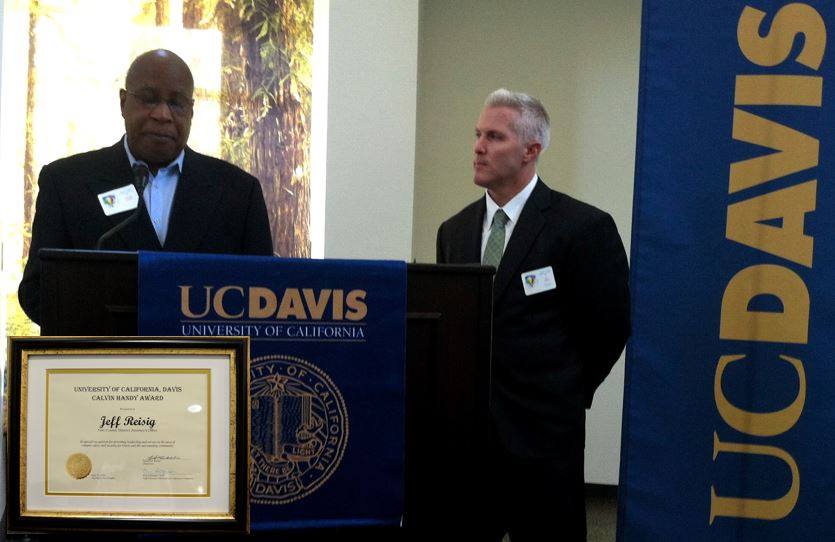
Yolo County District Attorney Jeff Reisig receives leadership award from retired UCDPD Police Chief Emeritus Calvin Handy. The Calvin E. Handy Leadership Award is a crime prevention and public safety award that recognizes individuals based on community oriented engagement and activities that are collaborative, cooperative, and proactive. This award highlights the importance of maintaining an environment where safety is essential to the successful mission of UC Davis and its surrounding communities.
MCCC Youth Leadership Academy
Youth Leadership Academy Flyer Youth Leadership Academy Application
The Yolo County Multi-Cultural Community Council partnered with the District Attorney’s Office and local law enforcement to create a Youth Leadership Academy. At the Youth Leadership Academy, high school students actively learn about the criminal justice system, discuss concepts of social and procedural justice, and engage in open dialogue between law enforcement and themselves concerning issues that affect the community. The Academy was designed with the goal of promoting acceptance, engagement, and leadership with youth in Yolo County communities.
Group circle discussion with MCCC Counsel member Griselda Castro , Yolo County District Attorney Jeff Reisig, Yolo County Court Judge Sonia Cortes, Woodland Police Department Chief Luis Soler, Mayor of Woodland Angel Barajas, Office of Education staff members Ismael Hernandez and Lori Perez, and Victim Services.
Youth Leadership Academy students pose with motivational speaker Kevin Bracy. Bracy presented “Who are you? Where do you come from? Where are you headed in life?”
Woodland Police Department officer presenting to students about the Department’s role in the community.
Neighborhood Court Expansion Projects

Yolo County is seeking to expand current grant-funded restorative diversion options such as the Neighborhood Court and Steps to Success/Full-Service Partner programs for the criminal justice-involved. These programs provide connections to resources, services, and supports for our local community members experiencing homelessness, substance use disorders, and/or mental health concerns contributing to criminal behavior. We need your input as we work to expand our reach.
Community Engagement Meetings
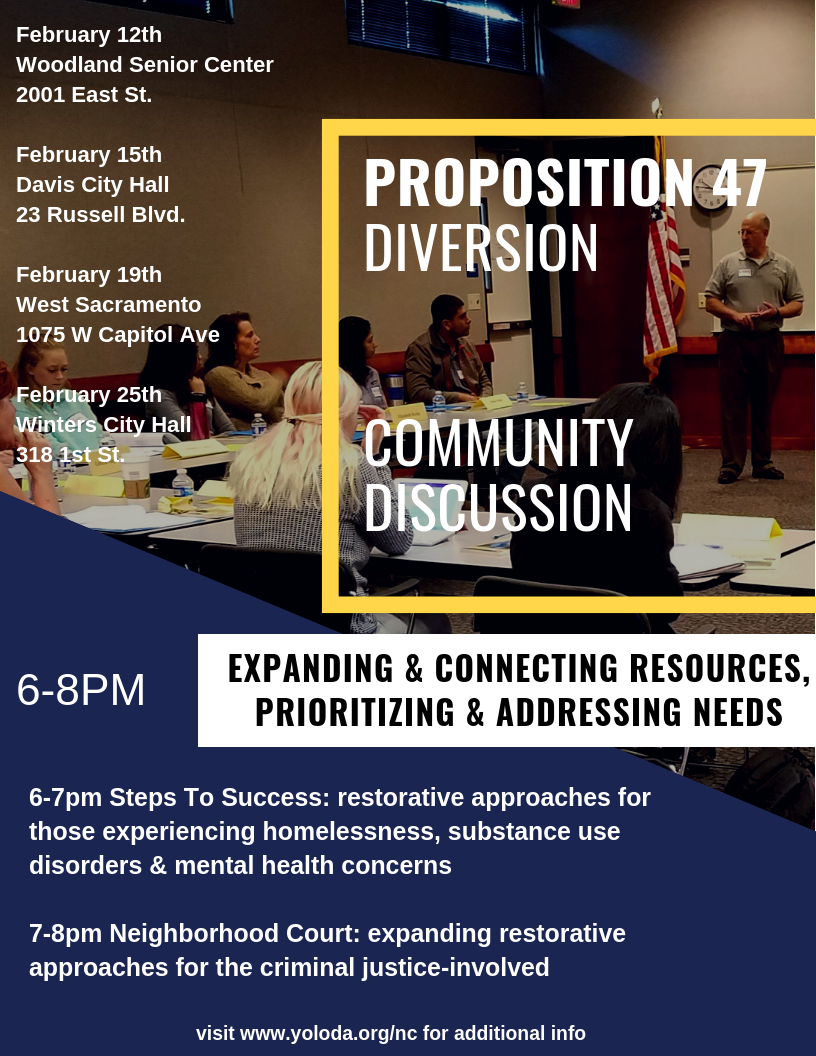
Community discussions to address needs, ideas, and concerns about expansion of the grant funded Steps to Success and Neighborhood Court diversion programs have been held in Woodland, West Sacramento, Davis, and Winters.
Please send questions and comments to Prop47@yolocounty.org or NeighborhoodCourt@yolocounty.org for questions related to the Neighborhood Court expansion.
0:00 – Start of Prop 47 Proposal Presentation (Slides)
19:50 – Start of Public Comment for Prop 47 Proposal
1:03:55 – Start of Neighborhood Court Expansion Presentation (Slides)
1:17:30 – Start of Public Comment for Neighborhood Court Expansion
Woodland Presentation Video (0:00 – Start of Prop 47, 1:12:00 Start of NHC Expansion)
FOCUS Program
District Attorney Jeff Reisig and Yolo County Superintendent of Schools, Garth Lewis, announced the launching of FOCUS, a notification system designed to decrease the negative impacts on children who are exposed to violence and trauma. The goal of the FOCUS program is for children to succeed to the best of their ability, regardless of the environment in which they live.
The program applies to K-12 students, does not allow disclosure of any confidential information, and has no costs associated with it. Currently, the partnership is between the Yolo County Office of Education and the seven local law enforcement agencies. The goal is to expand the program to private schools and all first responders. For information on FOCUS call the Yolo County District Attorney’s Office at 530-666-8180.


